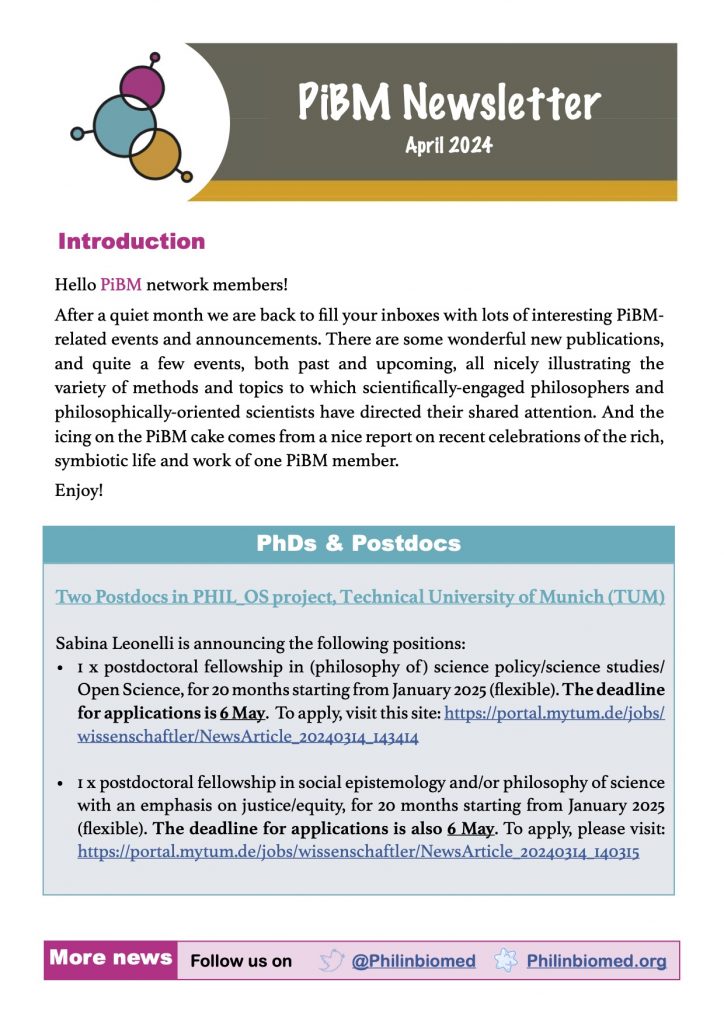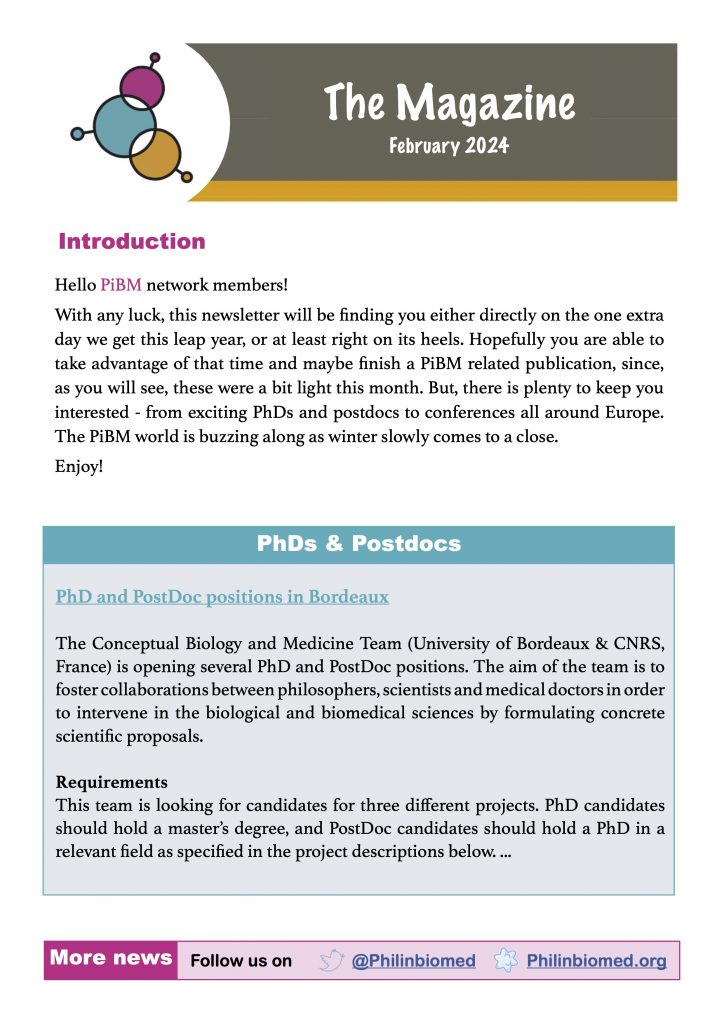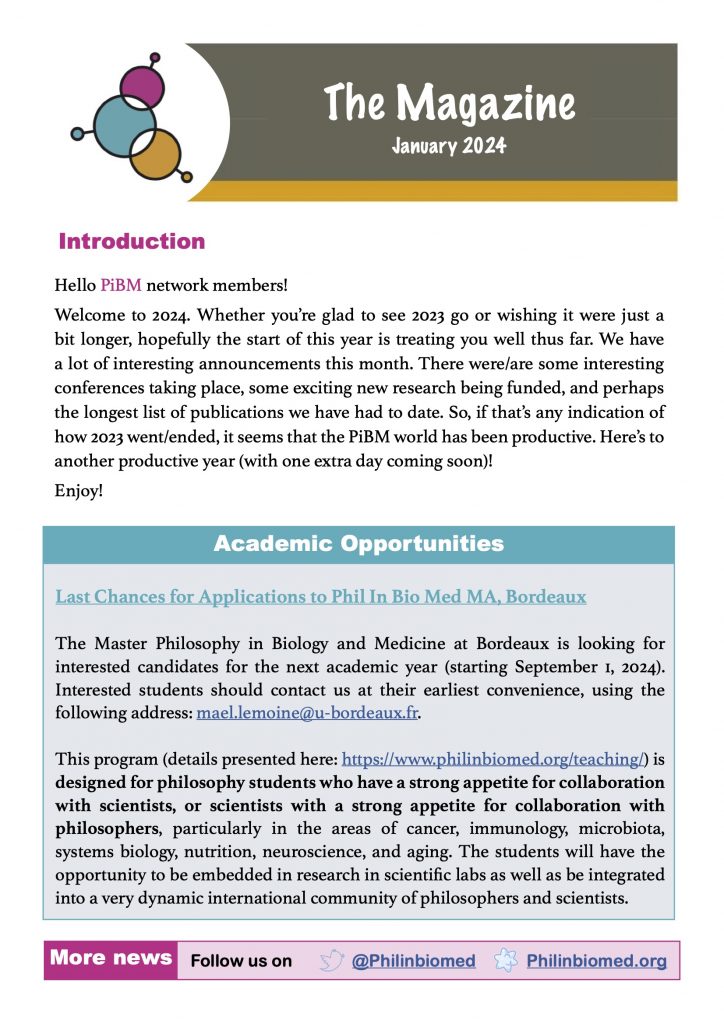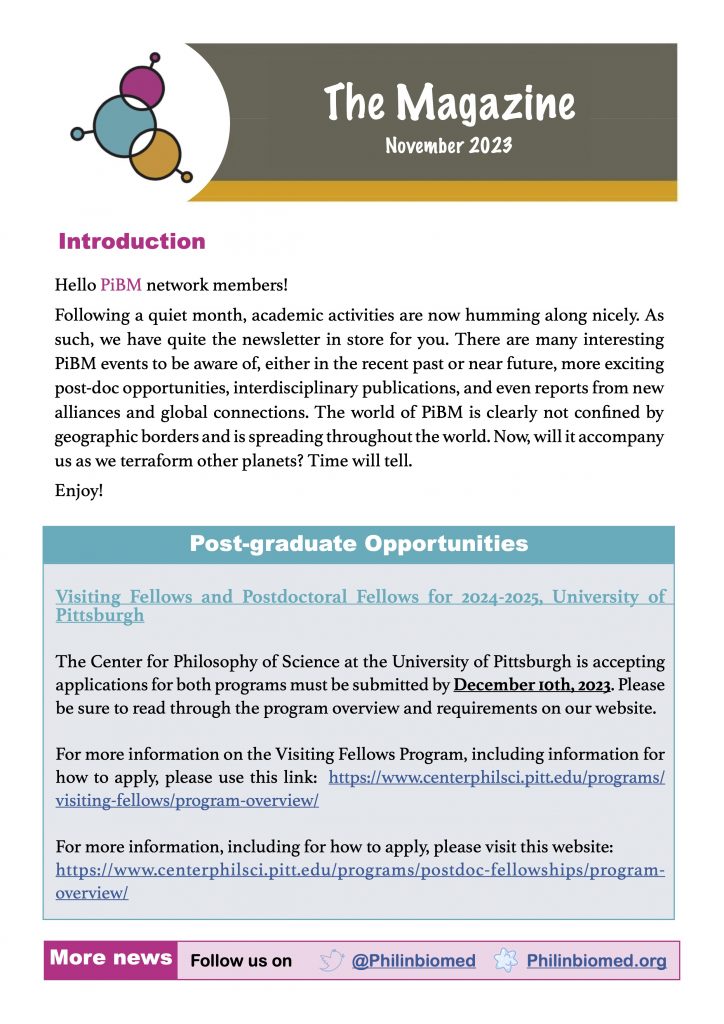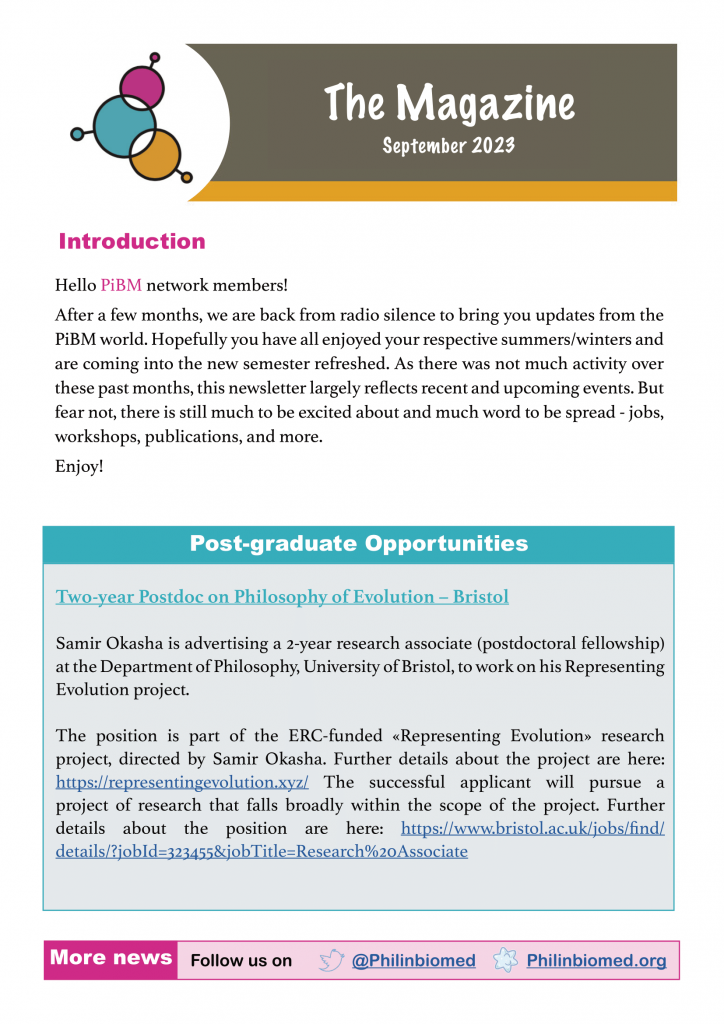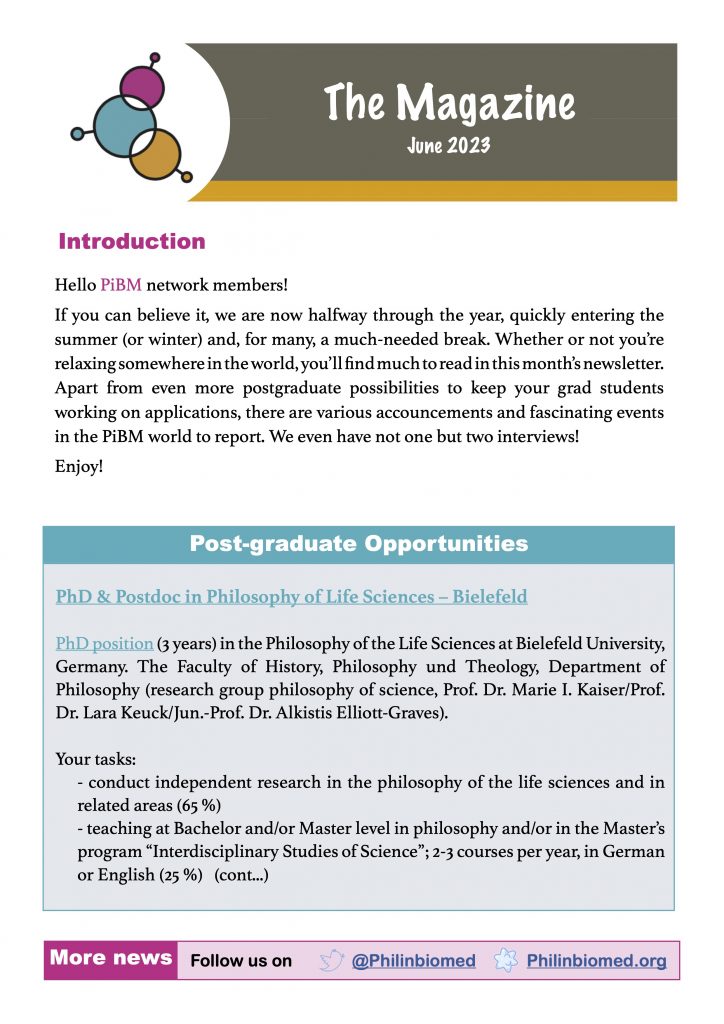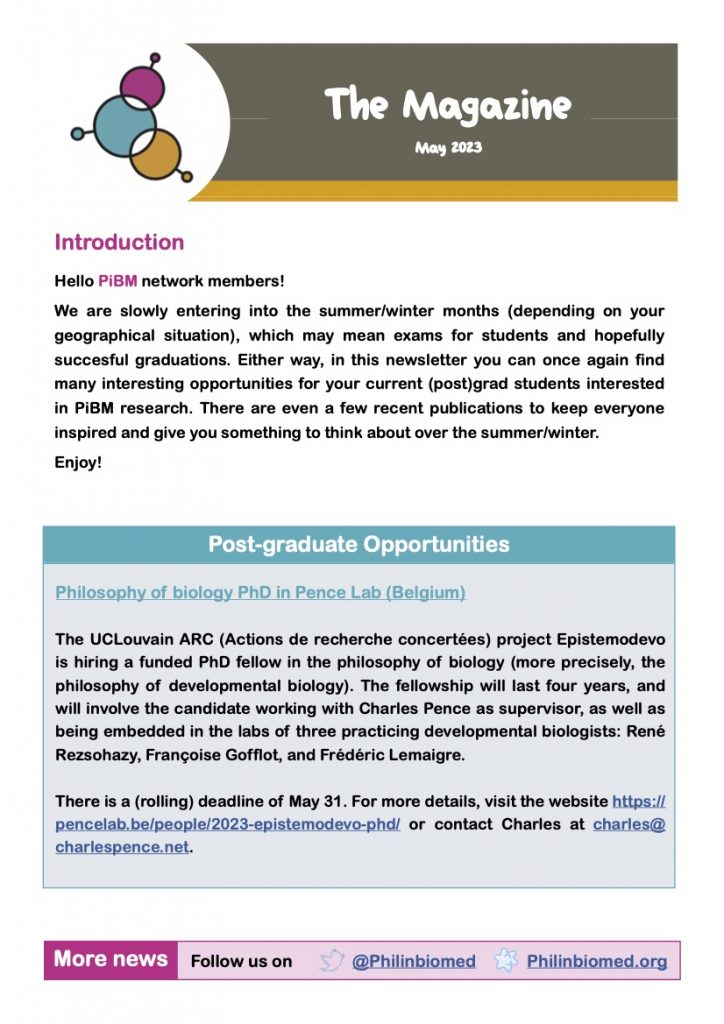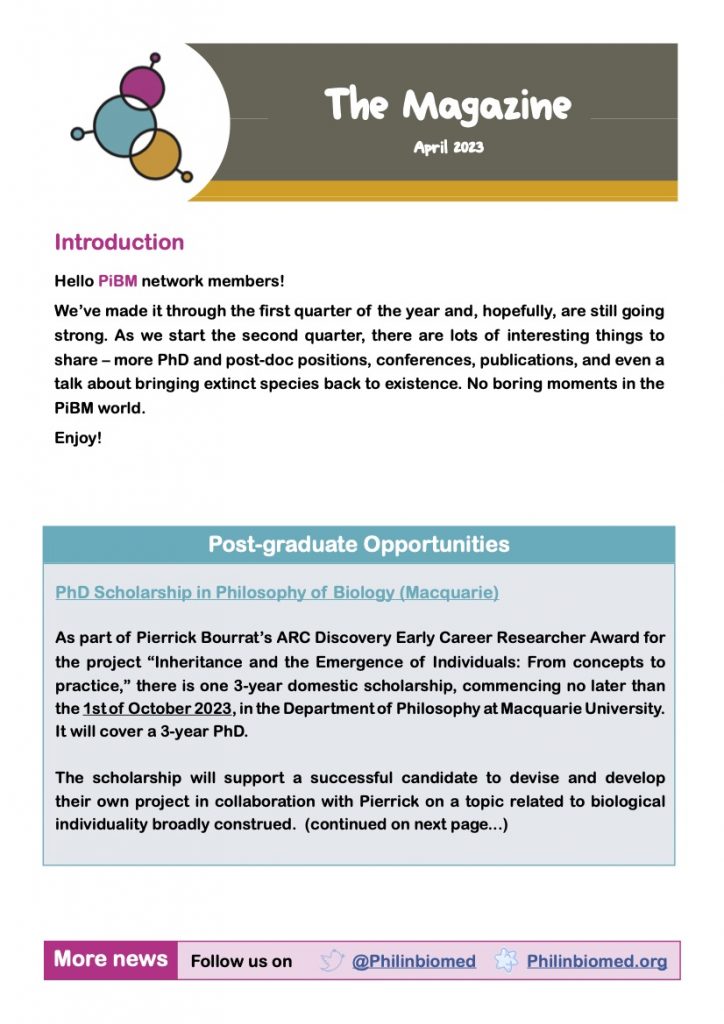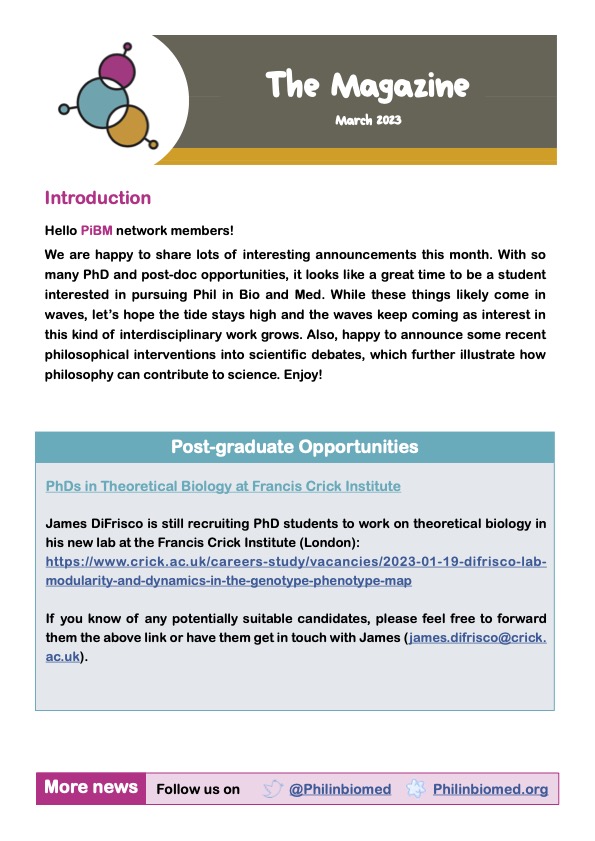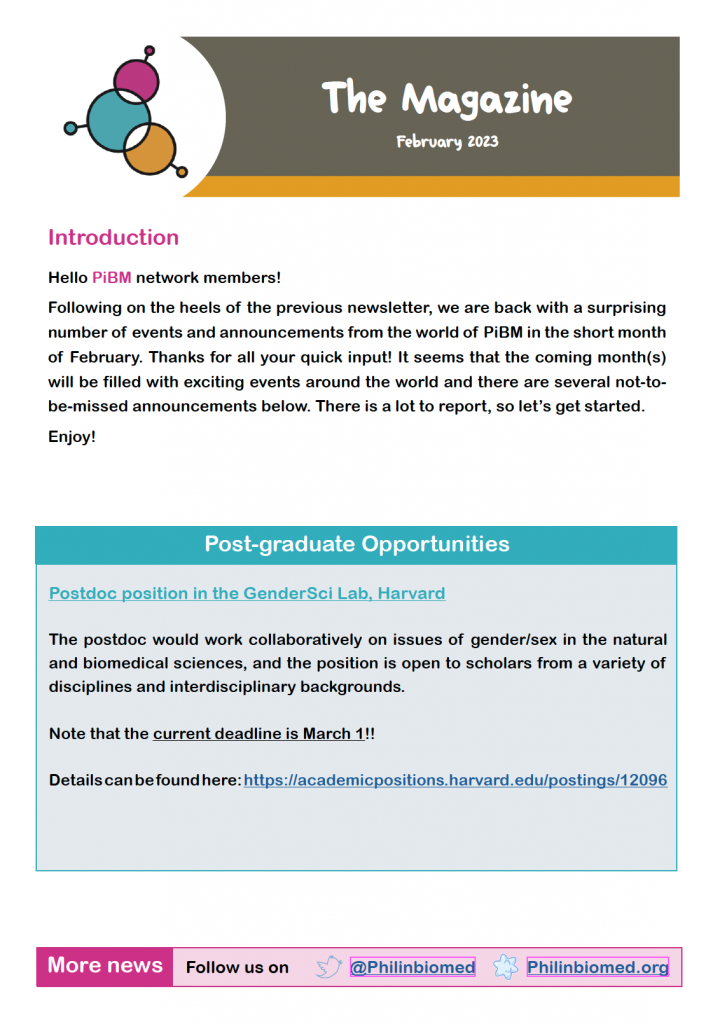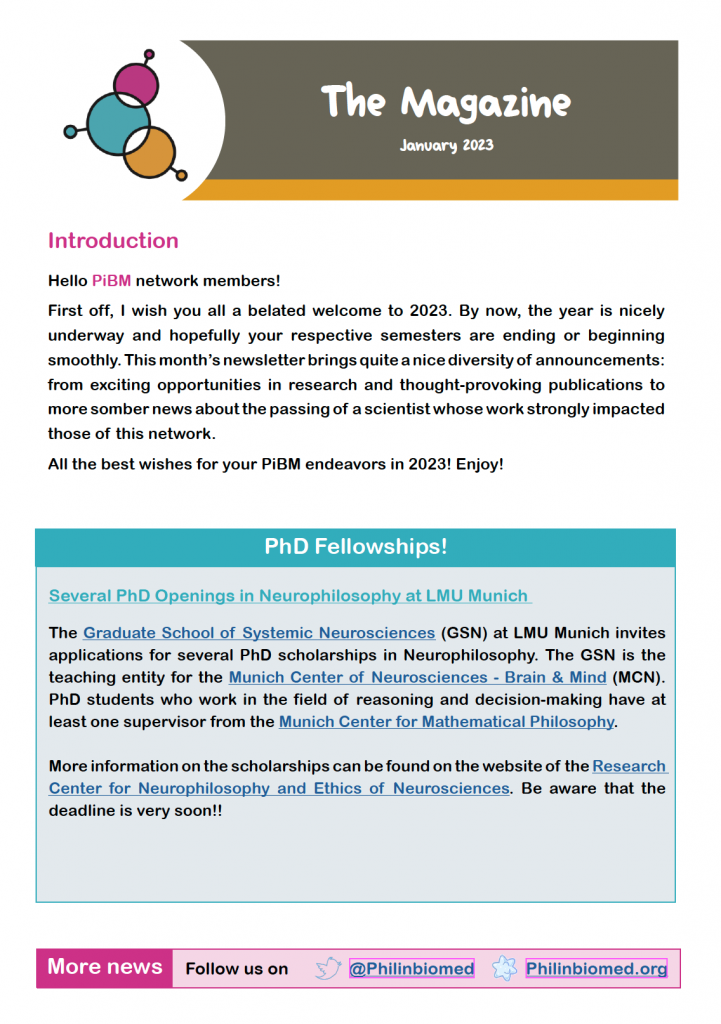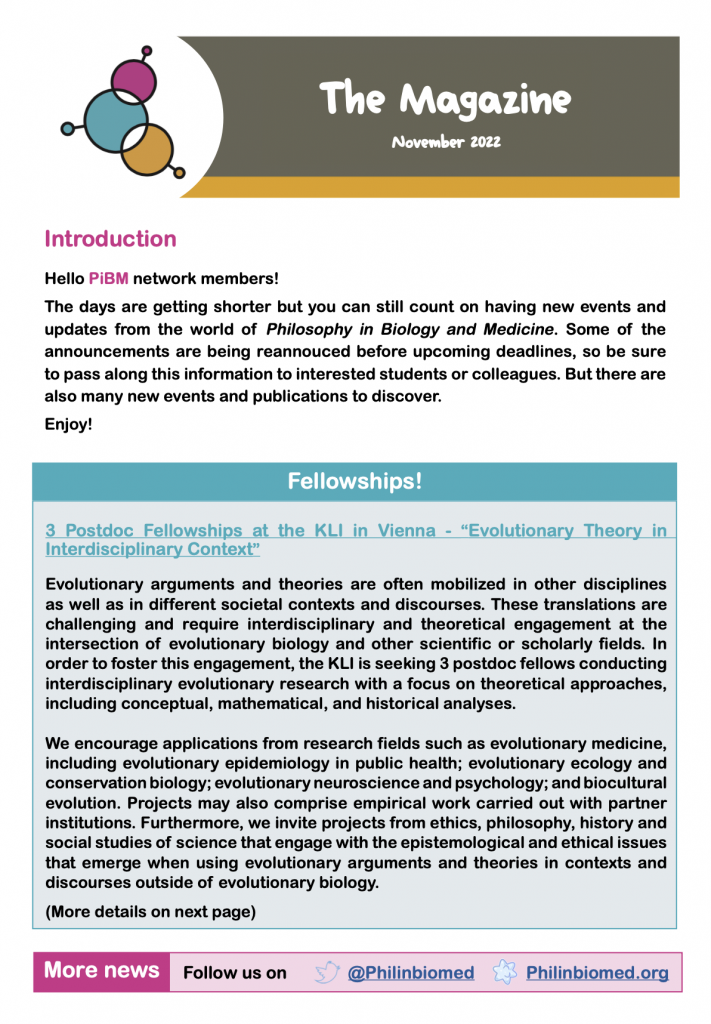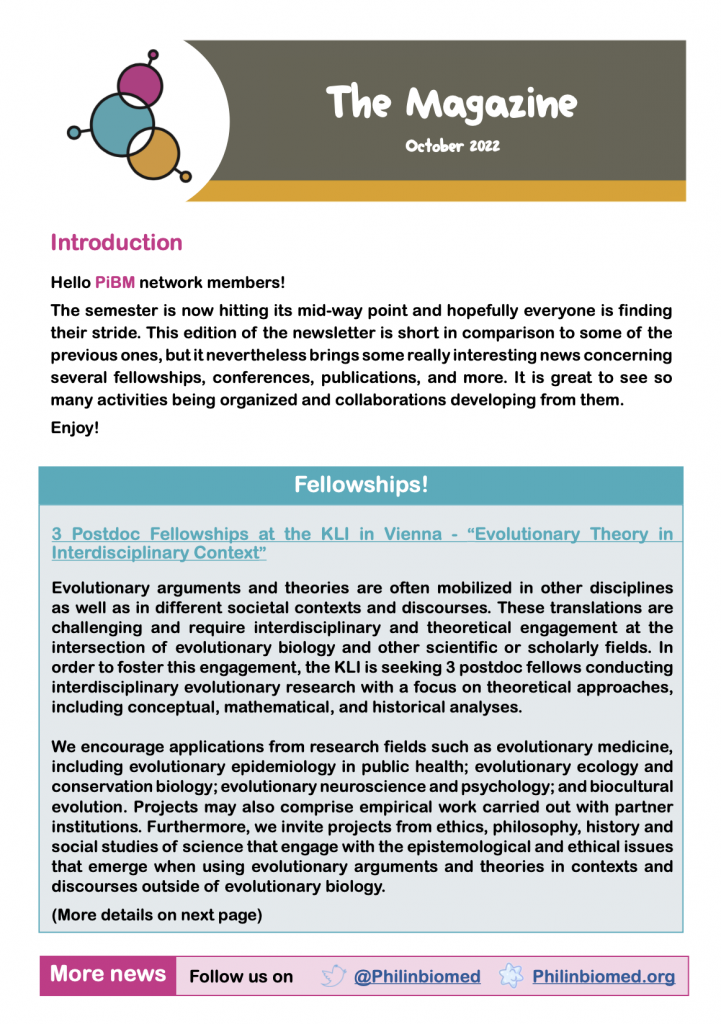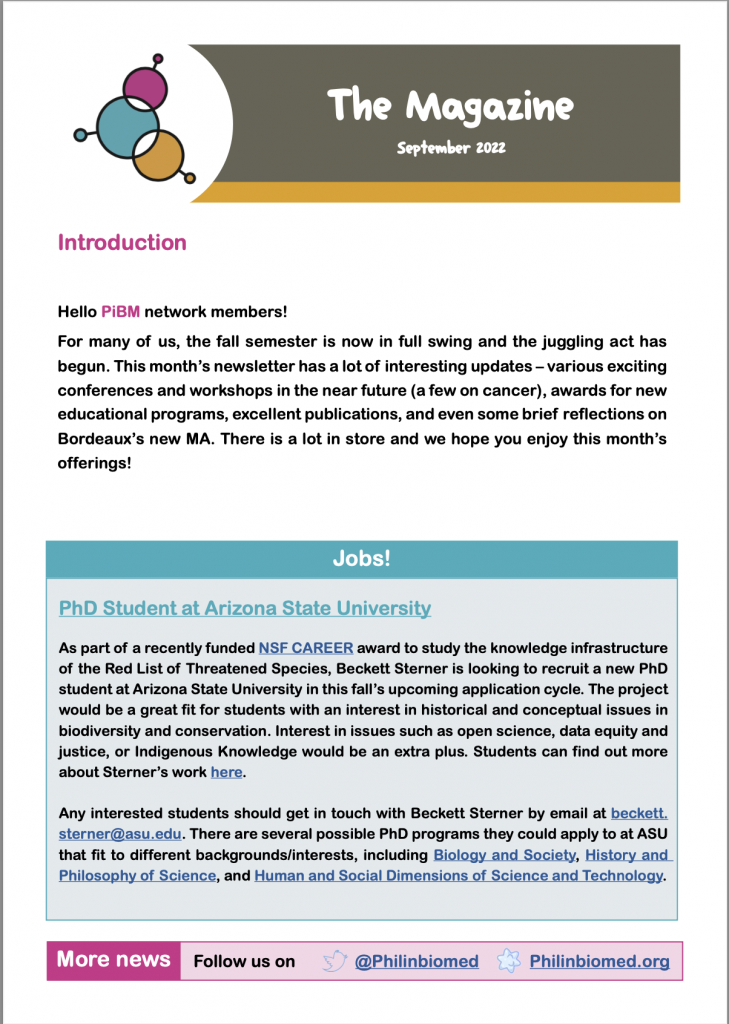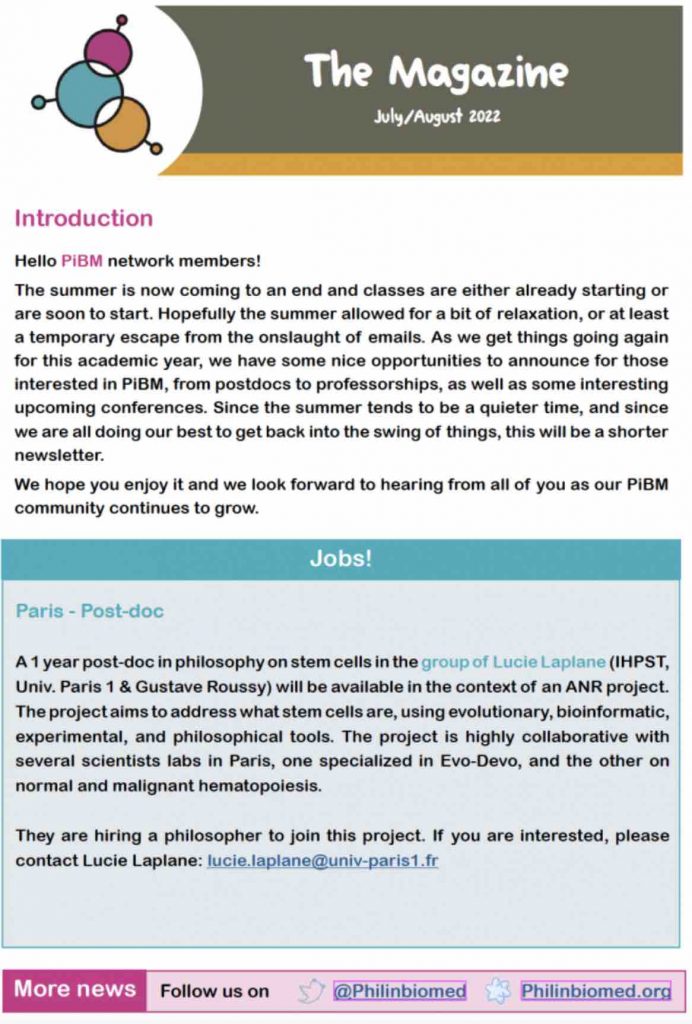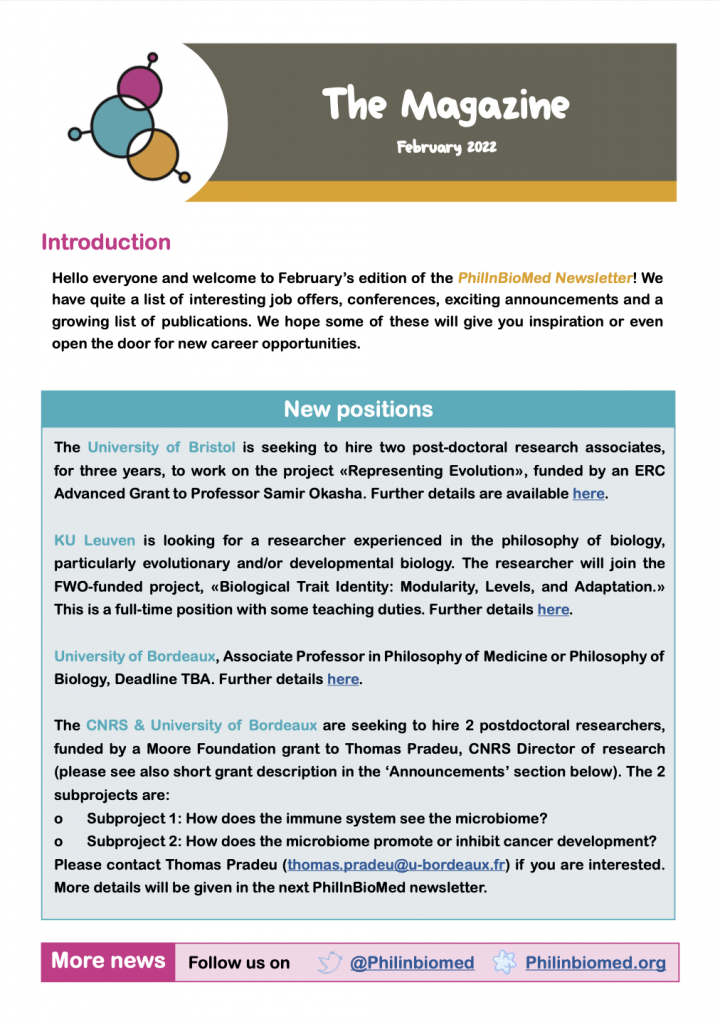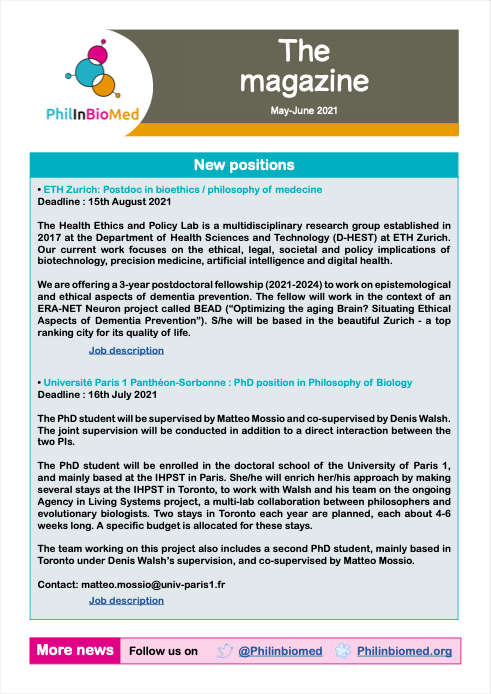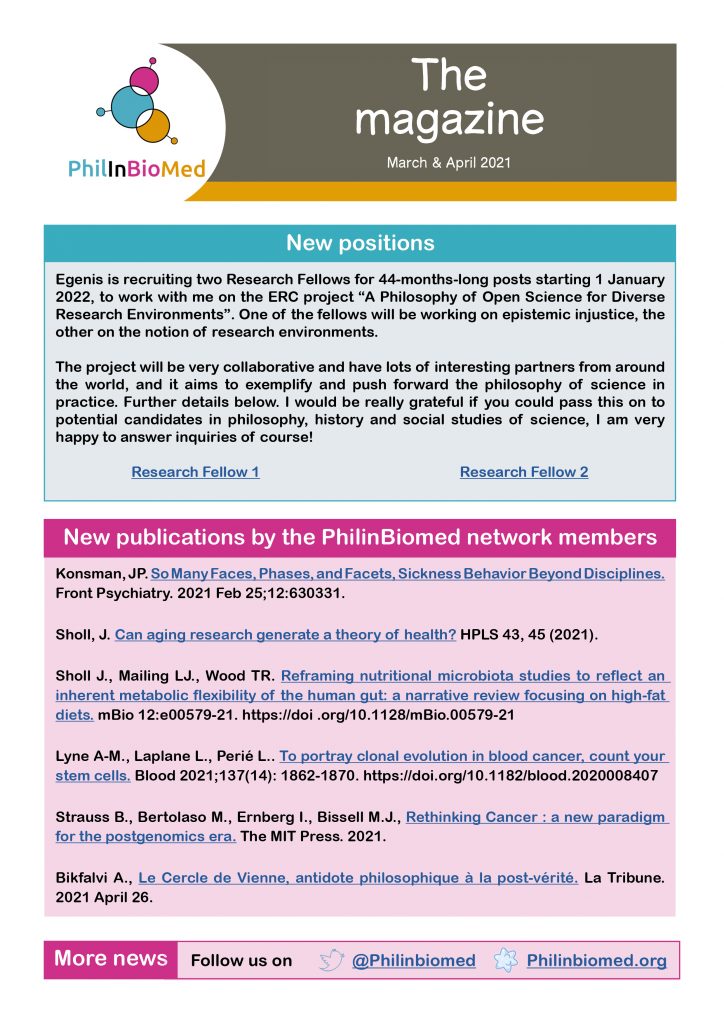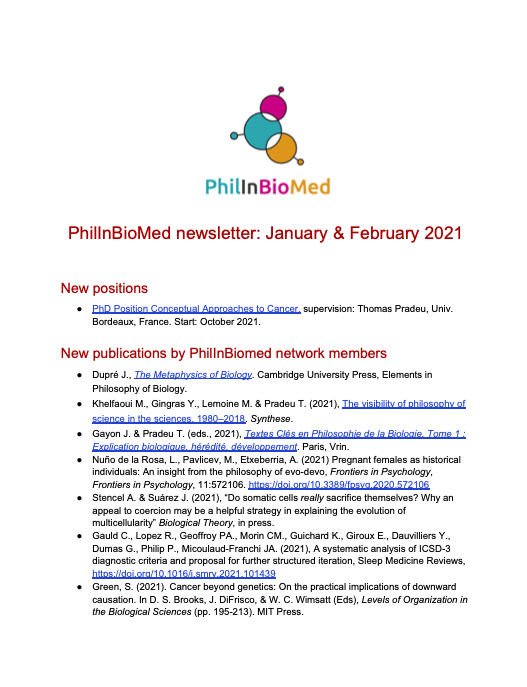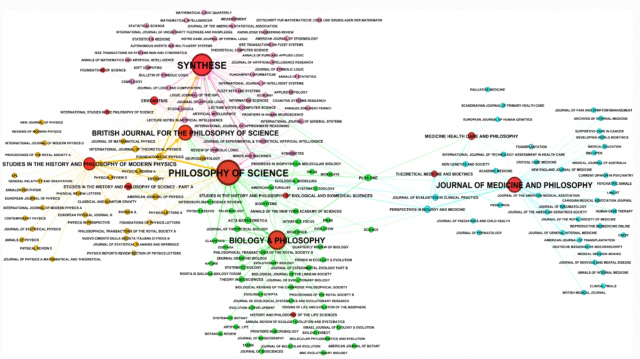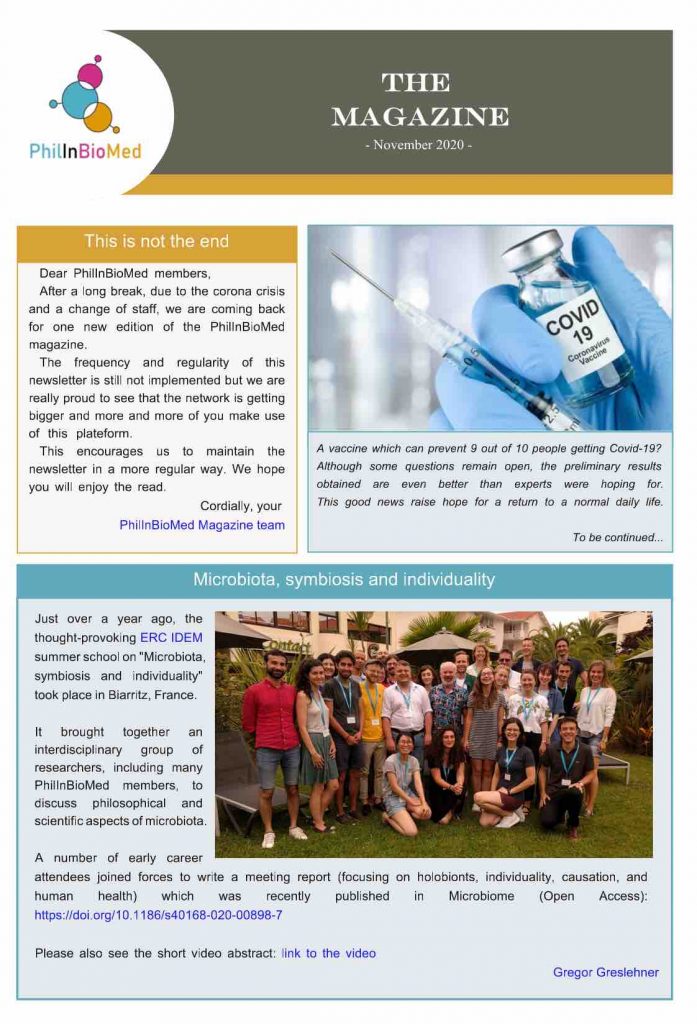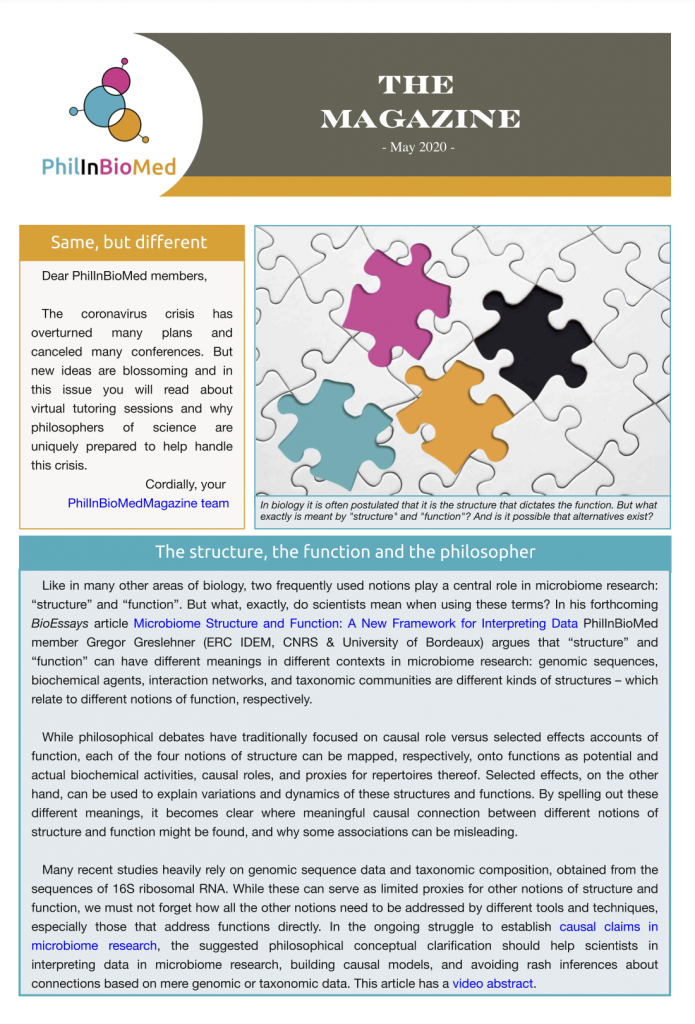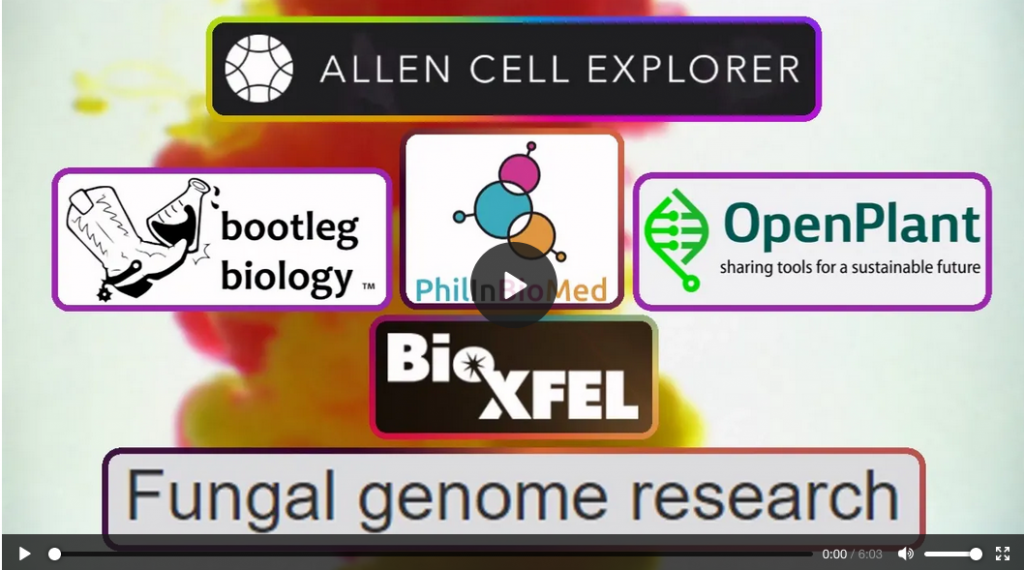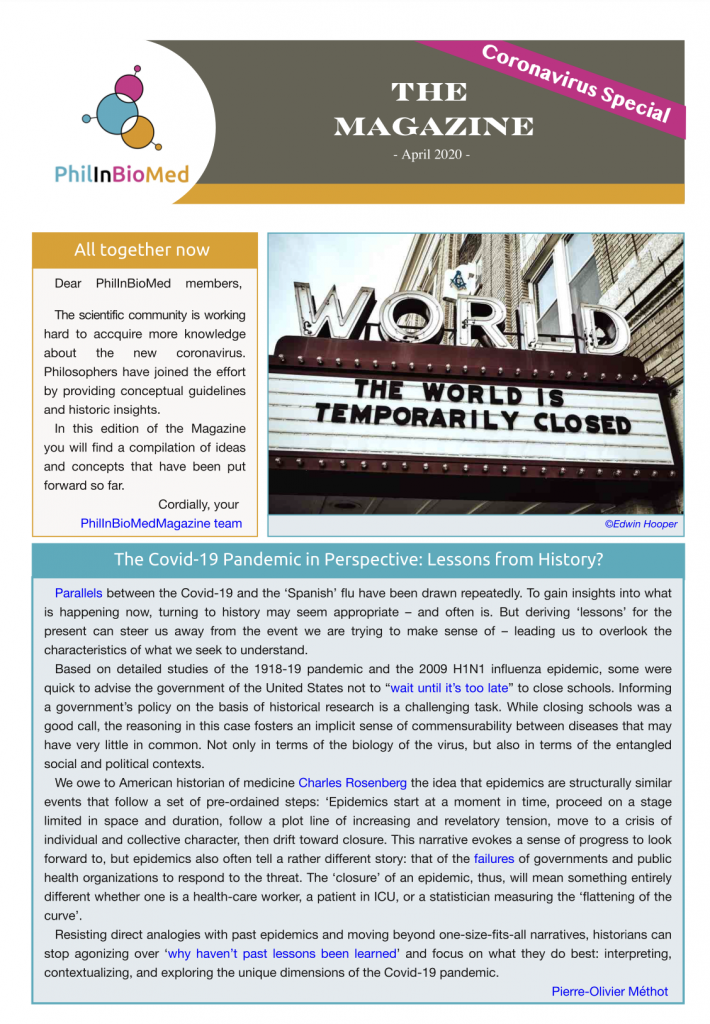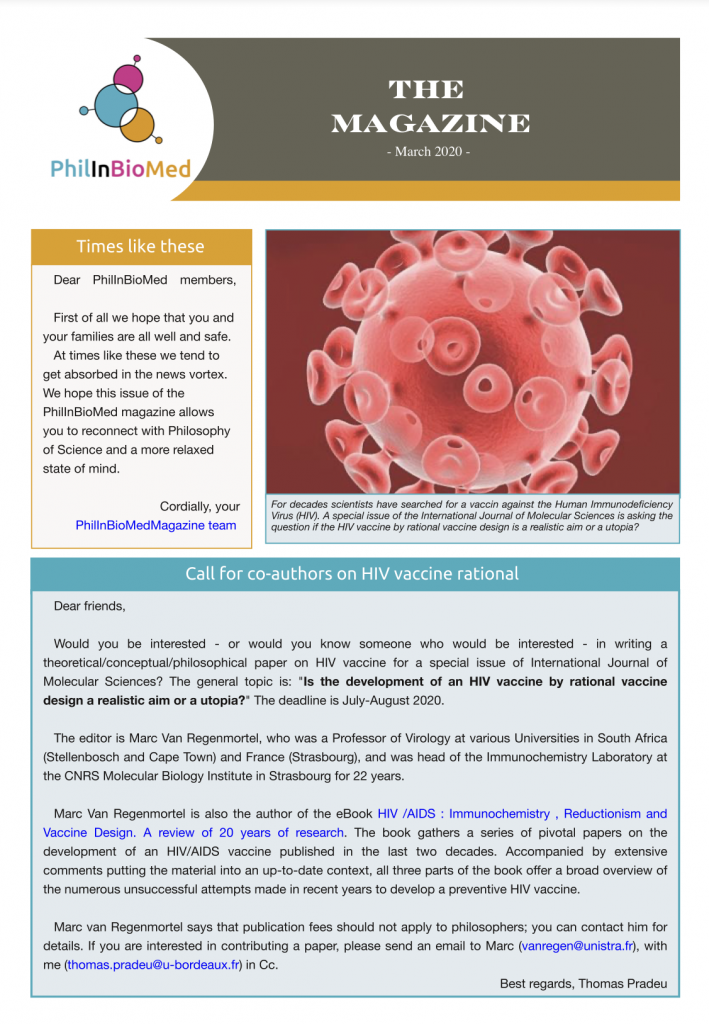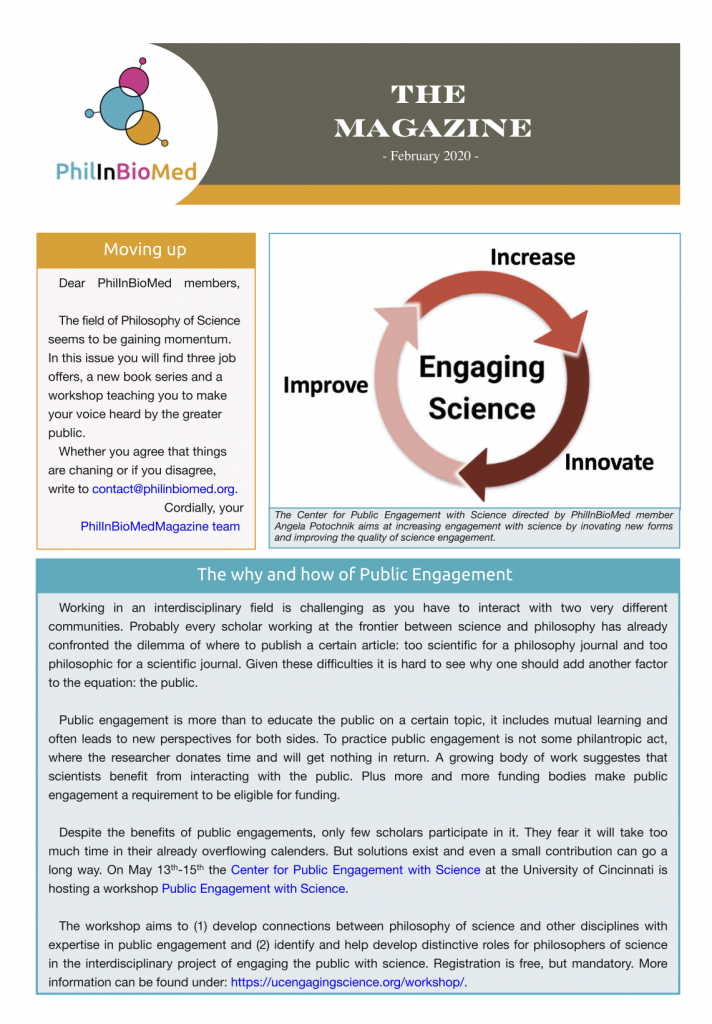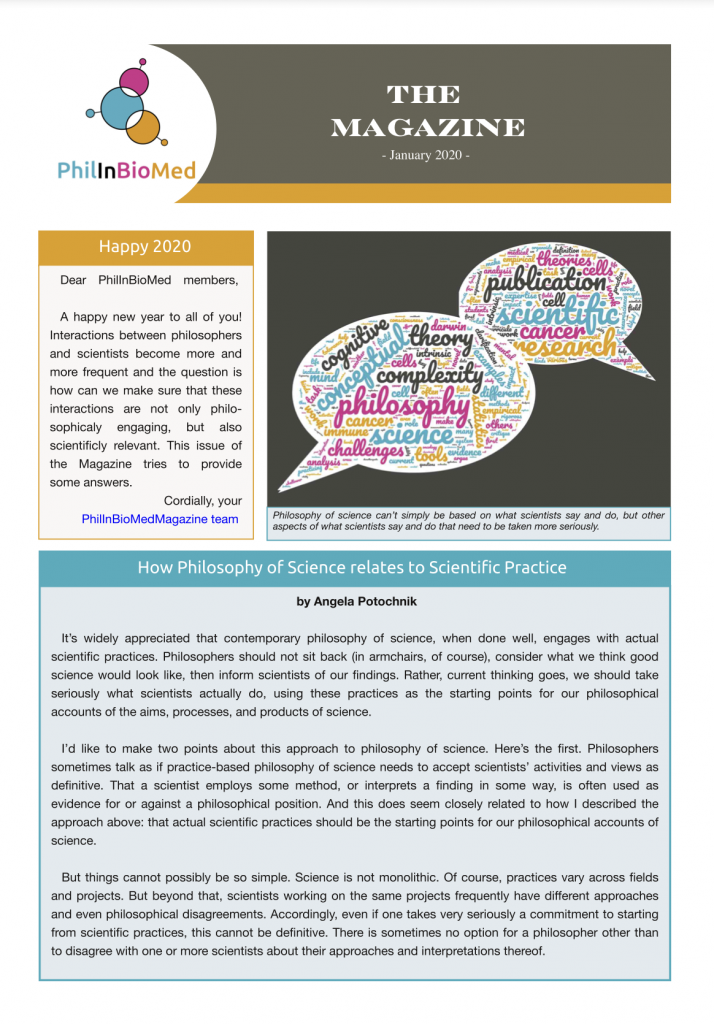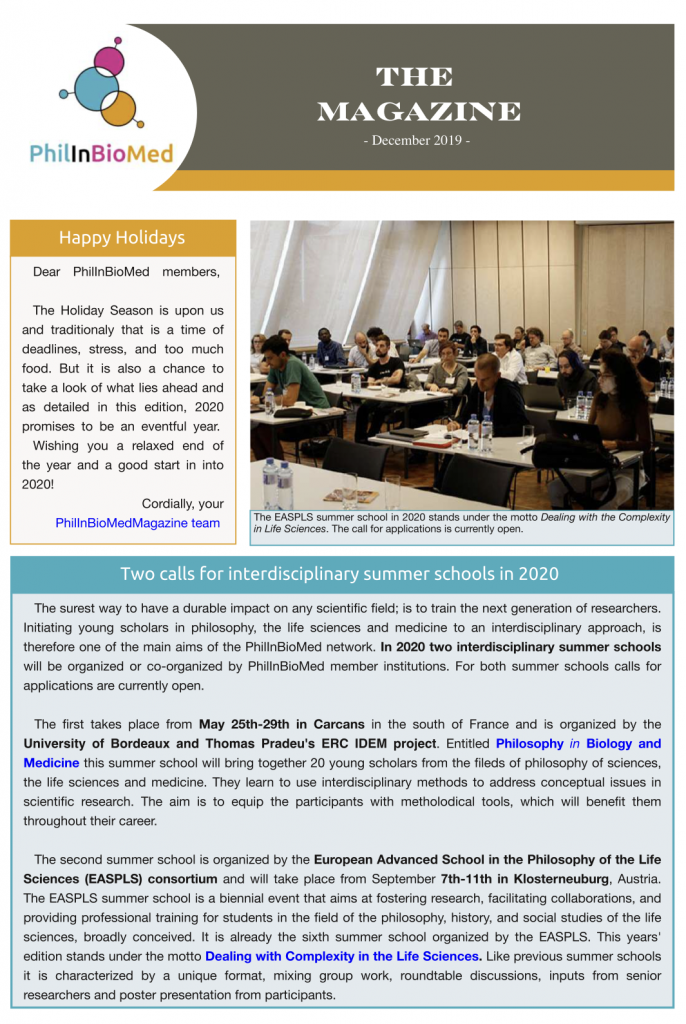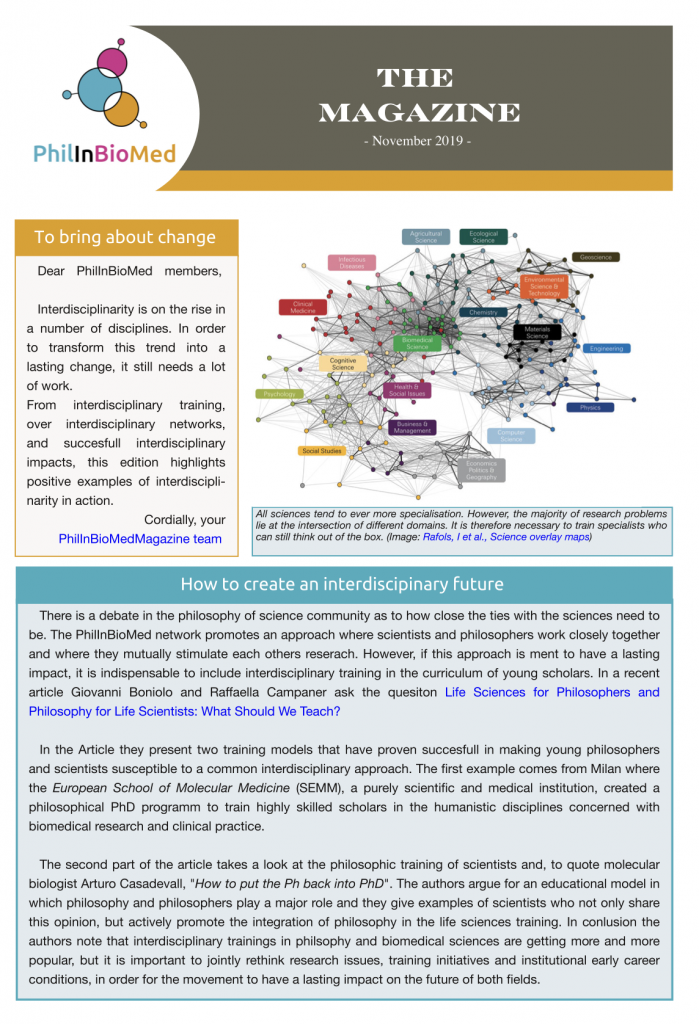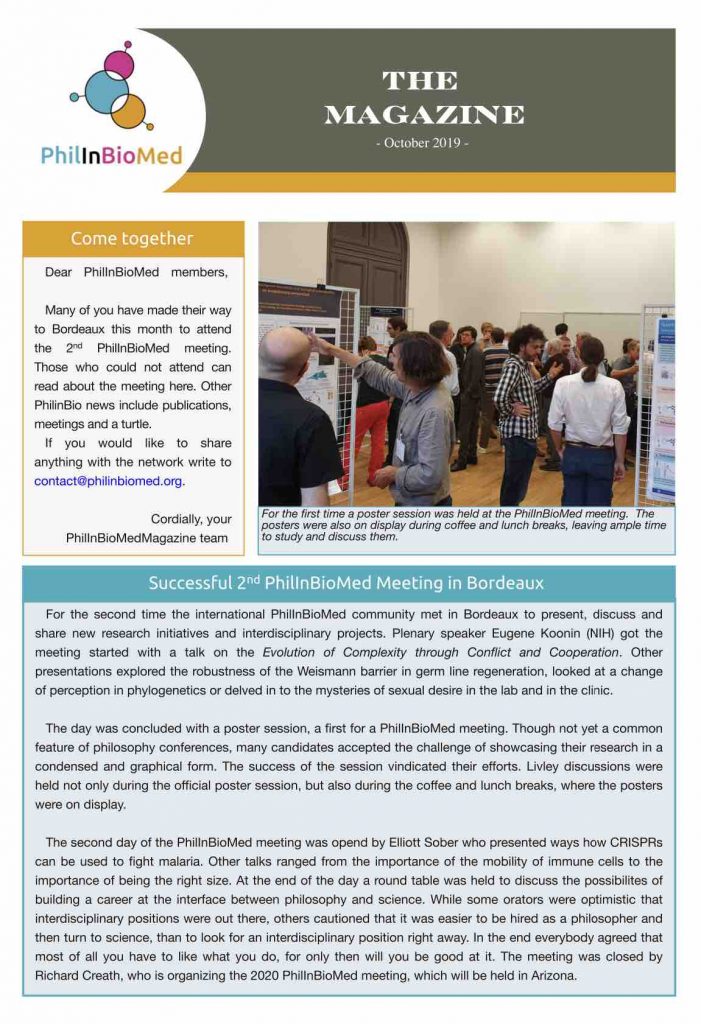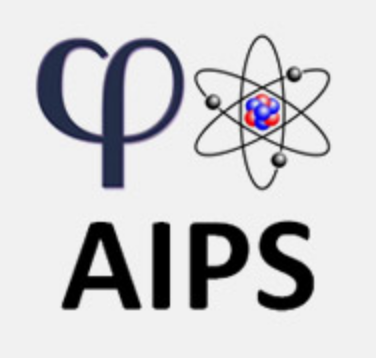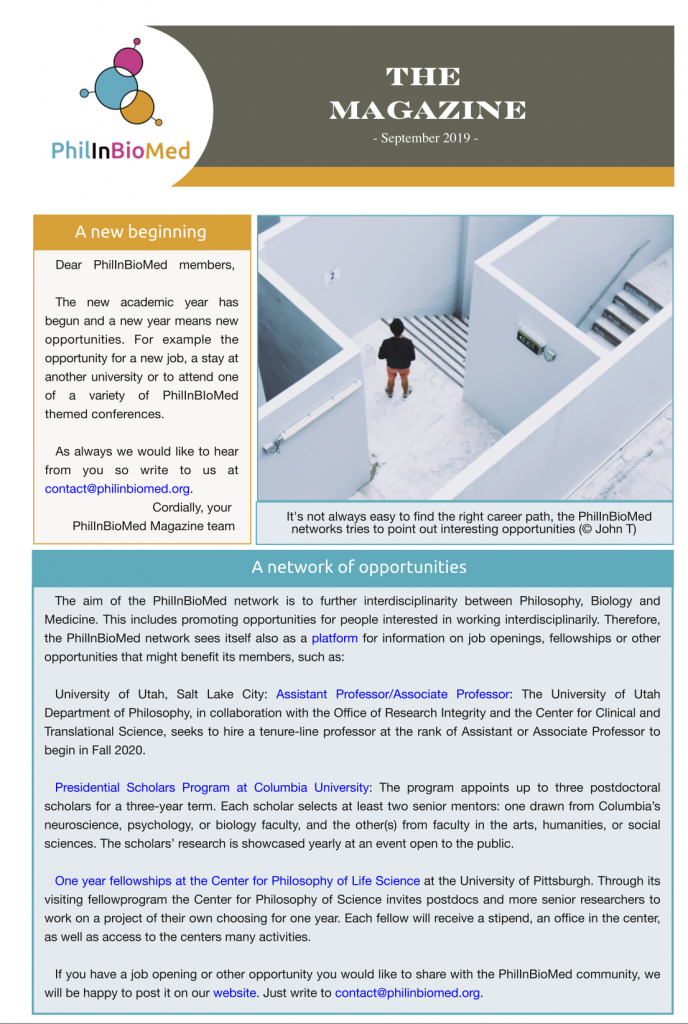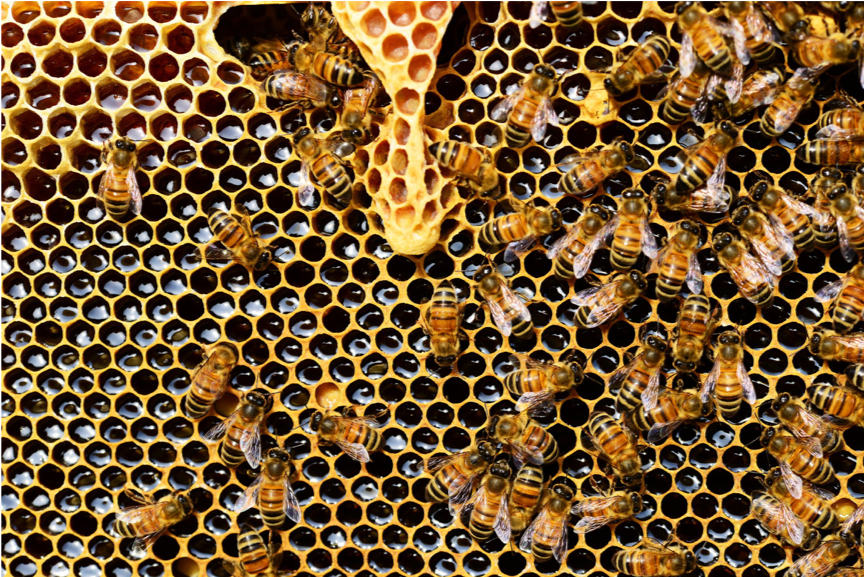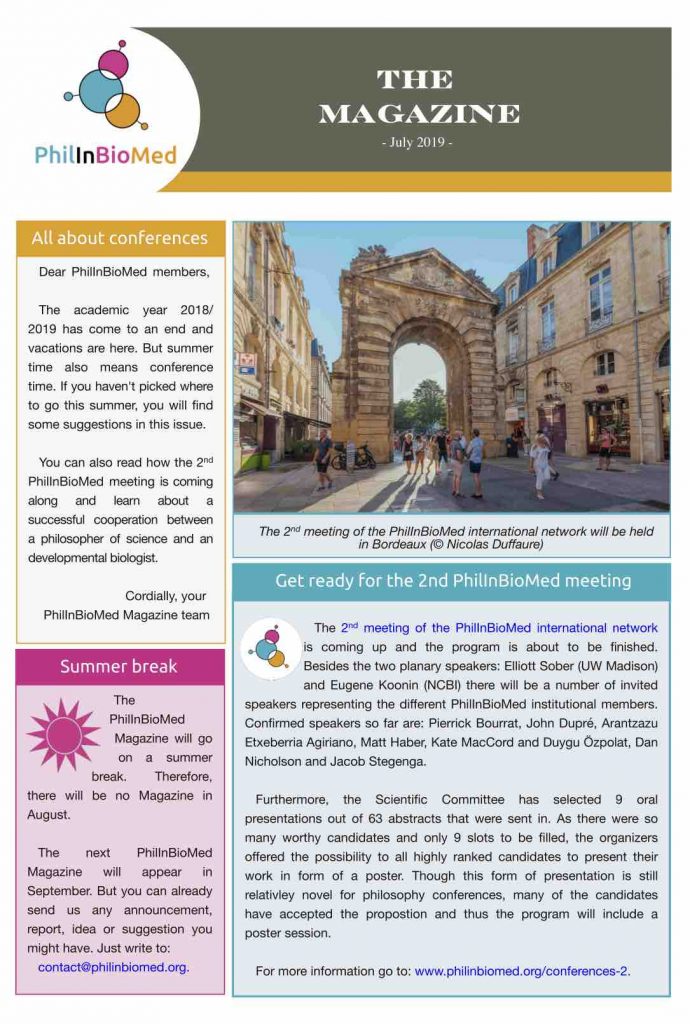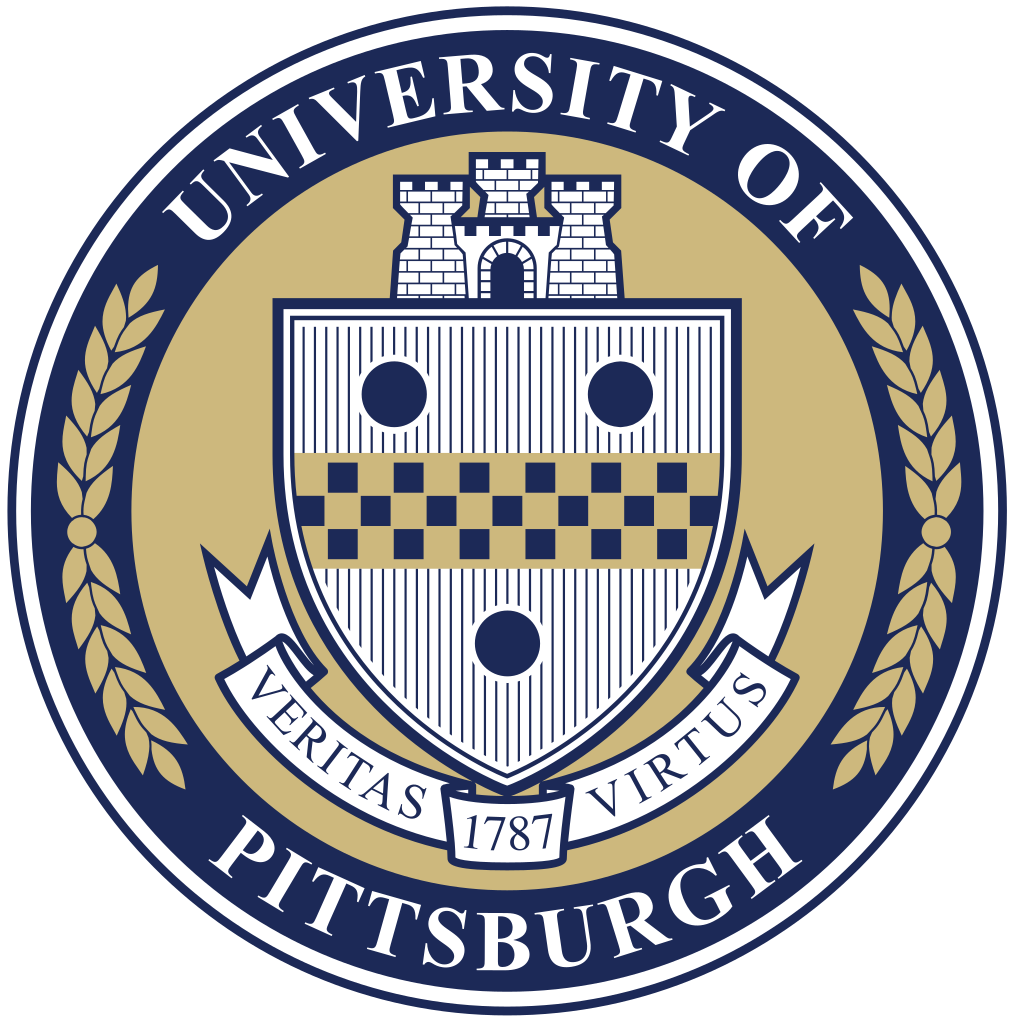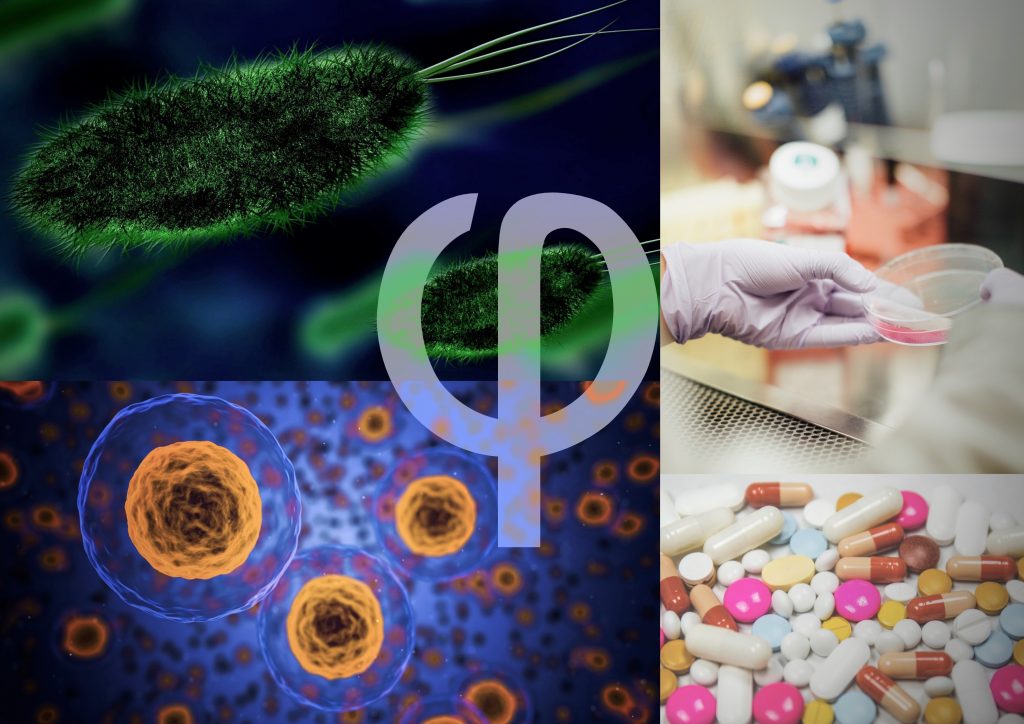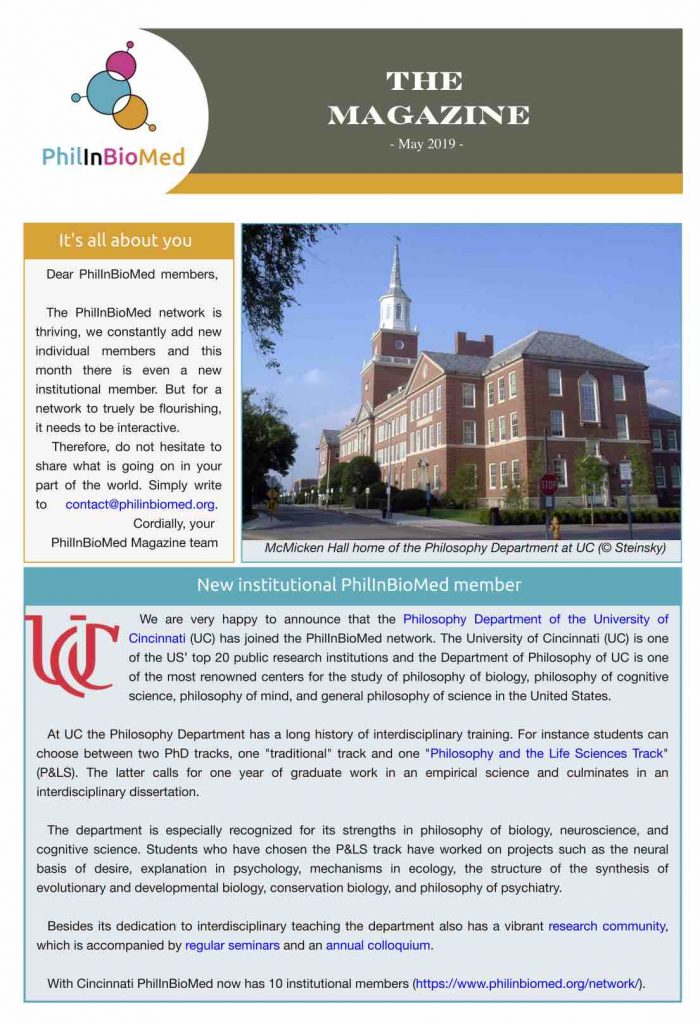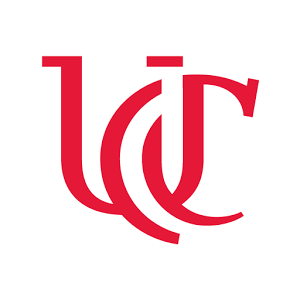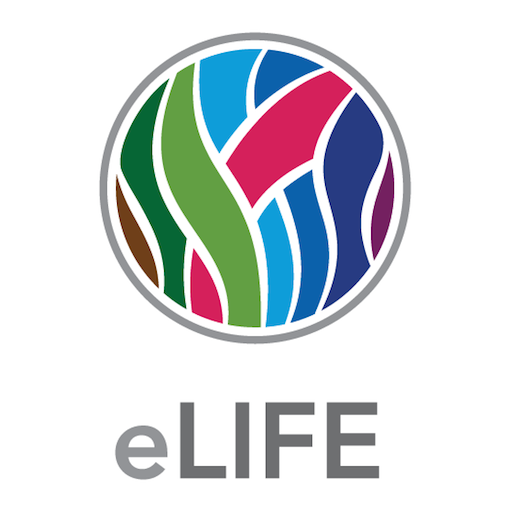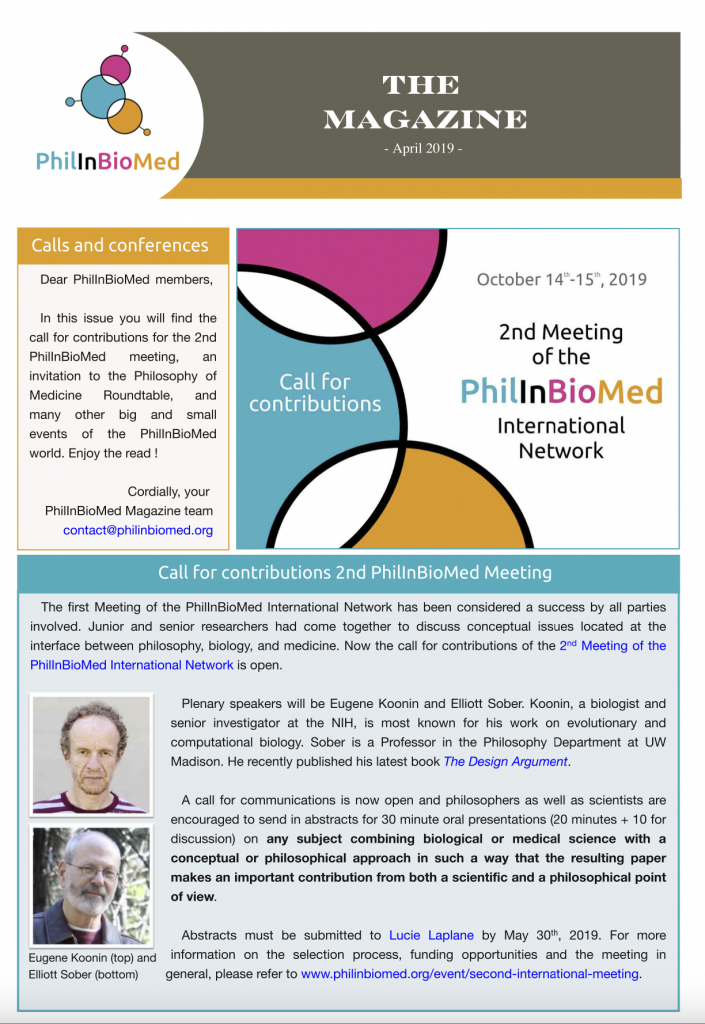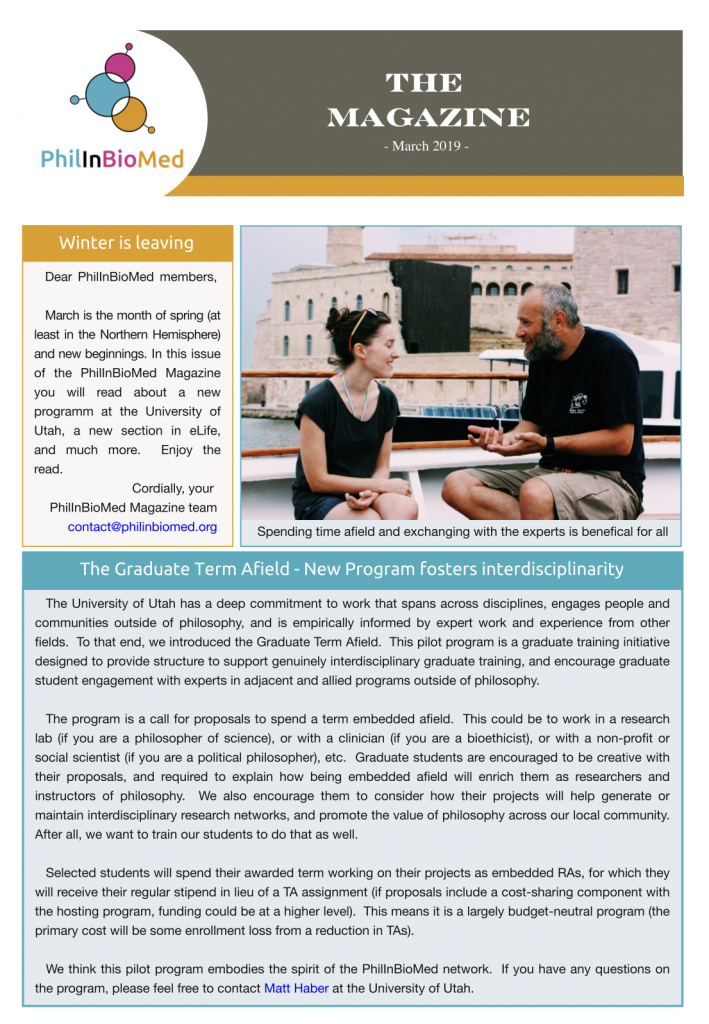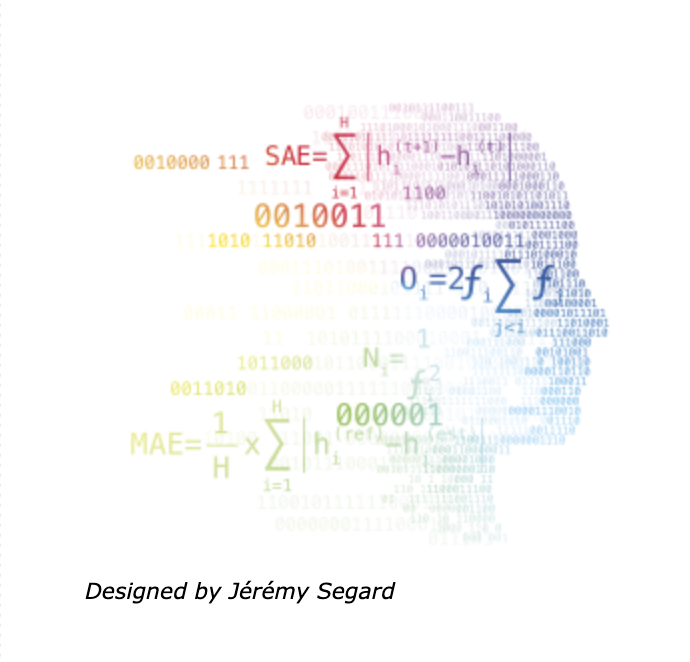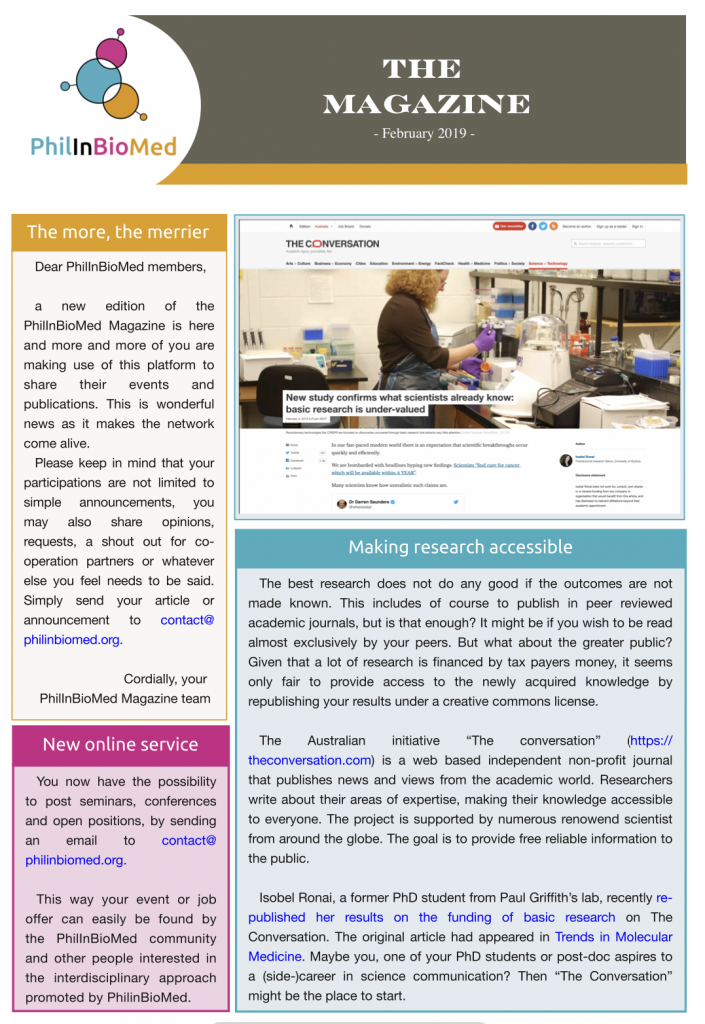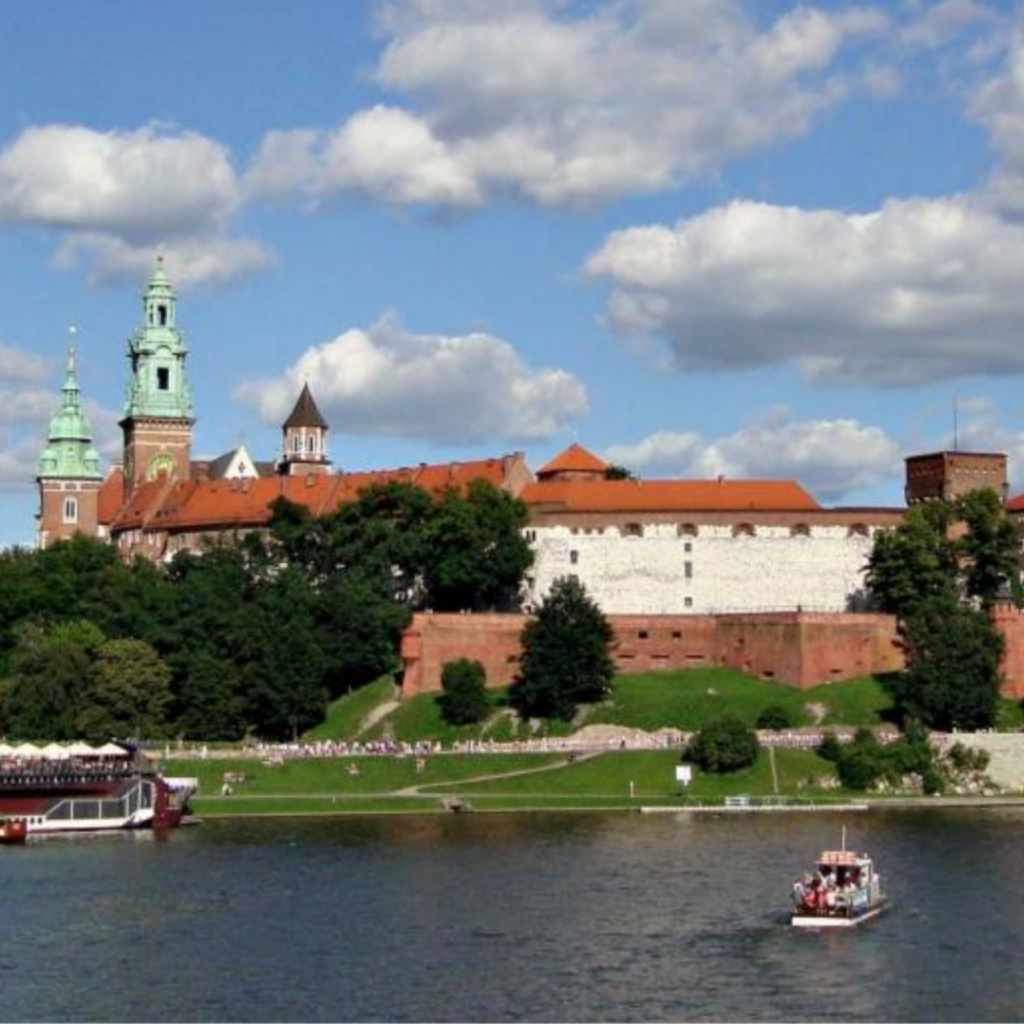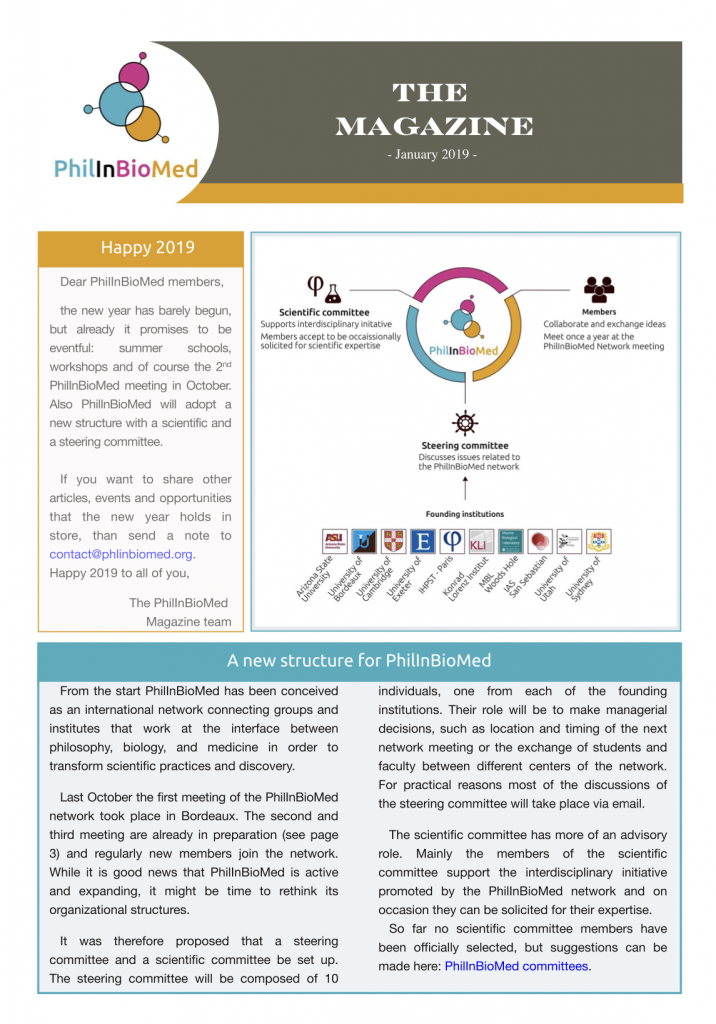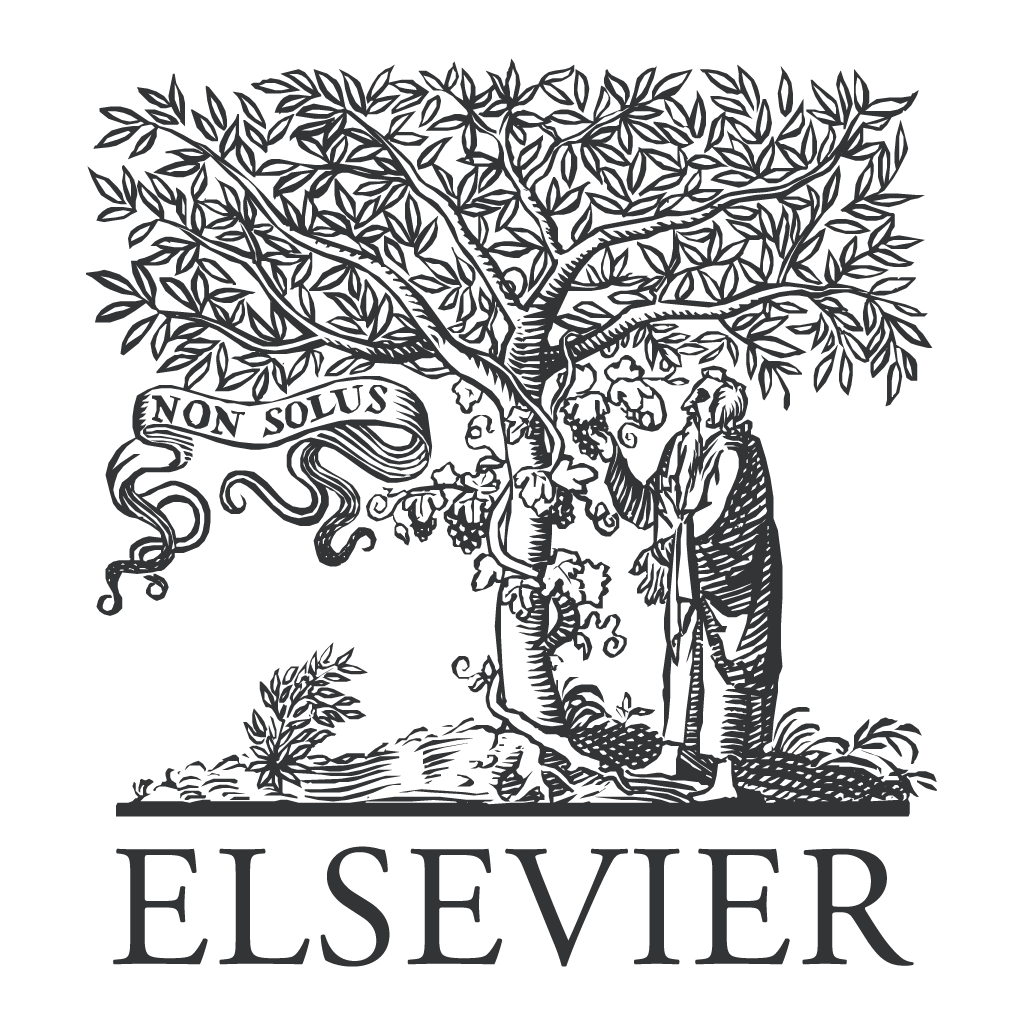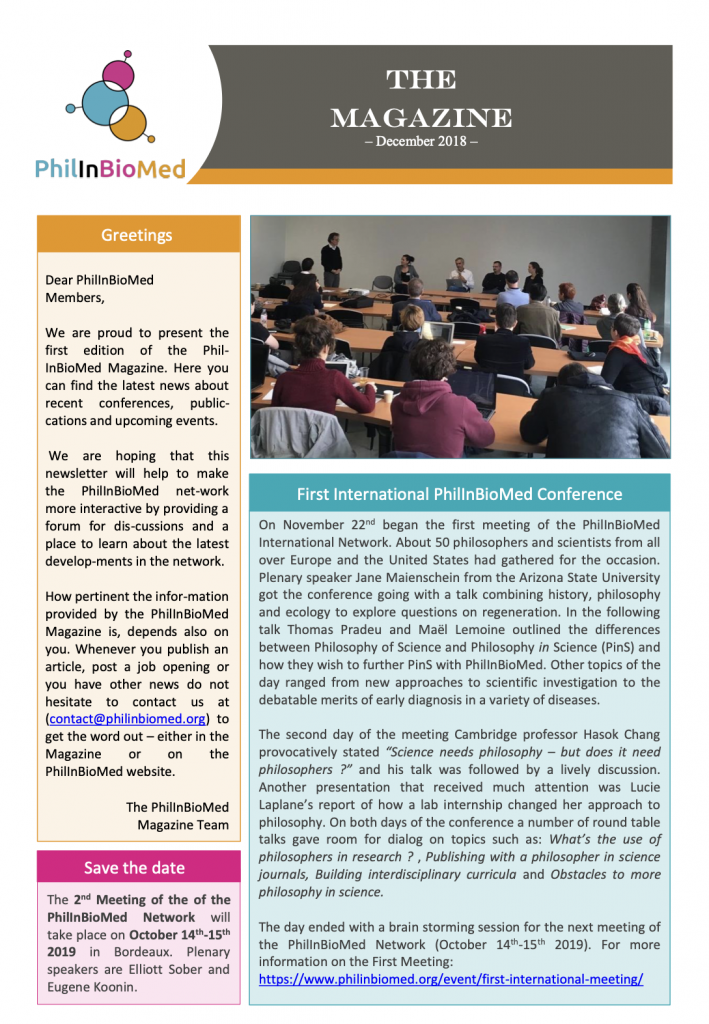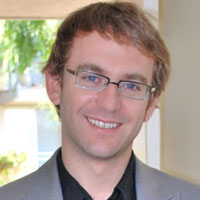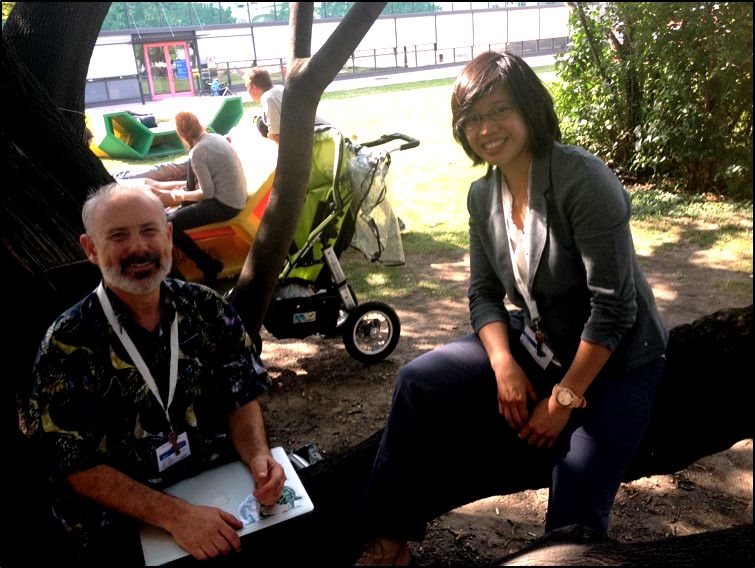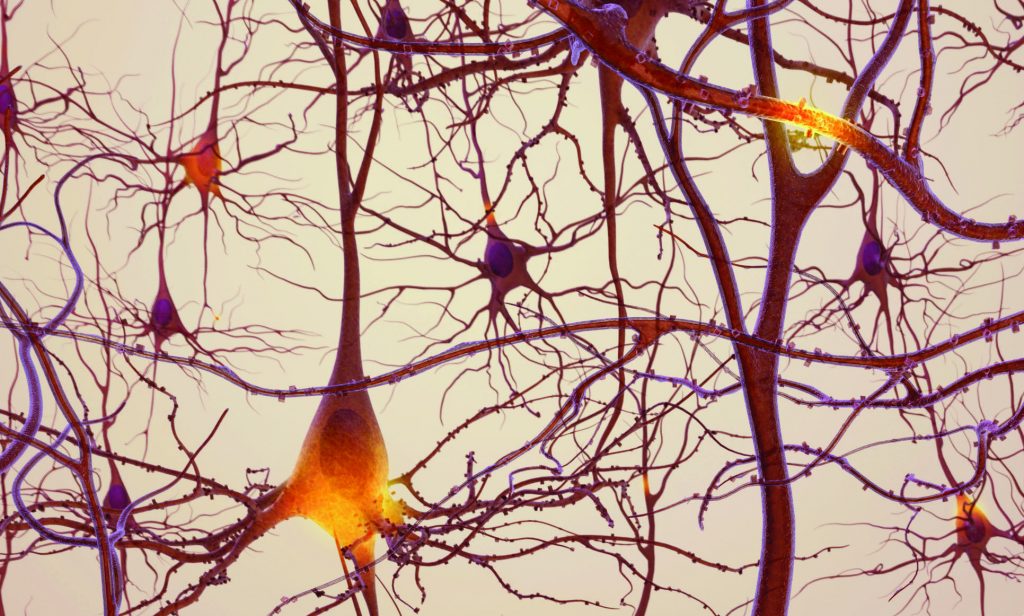Reuniting Philosophy and Science to Advance Cancer Research
Pradeu T, Daignan-Fornier B, Ewald A, Germain PL, Okasha S, Plutynski A, Benzekry S, Bertolaso M, Bissell M, Brown JS, Chin-Yee B, Chin-Yee I, Clevers H, Cognet L, Darrason M, Farge E, Feunteun J, Galon J, Giroux E, Green S, Gross F, Jaulin F, Knight R, Laconi E, Larmonier N, Maley C, Mantovani A, Moreau V, Nassoy P, Rondeau E, Santamaria D, Sawai CM, Seluanov A, Sepich-Poore GD, Sisirak V, Solary E, Yvonnet S, Laplane L. (2023), Reuniting Philosophy and Science to Advance Cancer Research. Biological Reviews. (Open Access).
Postdoc position @UBordeaux: Philosophy of Cancer & Aging
A new position opens in philosophy of cancer at ImmunoConcept
Candidate will investigate evolution and phylogenetics of photoprotection in relation to skin cancer and photoaging.
The position starts in September 2022 for 12 months.
Main goal is to co-write a conceptual piece on that question.
Strong interdisciplinary and international context
The postdoc will joint the Conceptual Biology and Medicine team at ImmunoConcept and work in collaboration with several other cancer research units on the Campus.
The postdoc will also enjoy numerous interactions with top scientists and philosophers visiting the lab and participate in international activities.
Contact Maël Lemoine for further information
A tenured position in philosophy of medicine or biology opens in Bordeaux
AOS: Philosophy of medicine, Philosophy of biology
AOC: Philosophy of Science
University of Bordeaux (France)
Deadline for application: June 28th, 2021.
Application: mael.lemoine@u-bordeaux.fr
Short description of the job profile
Candidates will have developed an expertise in any topic of medical science (e.g. a disease, a method, a subfield) by applying conceptual tools from philosophy of science to specific problems in medicine. The new professor will join a group of philosophers tightly collaborating with biologists and medical scientists. She or he will teach in English in an international Master program of “philosophy in science”, to be created soon.
Detailed description of the job profile
The person recruited will be required to teach in medical, scientific and philosophical curricula.
The successful candidate will be expected to contribute to the development of the activities of the PhilInBioMed network (Institute for Philosophy In Biology and Medicine), through active international collaboration (http://philinbiomed.org).
In terms of teaching, the recruited professor will have to actively contribute to the implementation of innovative teaching, particularly at Master’s level, for philosophers wishing to work closely with scientists, and to integrate into existing philosophical teaching systems for courses in the health sciences.
The recruited professor should also participate in teaching in the health/sciences curriculum in the first cycle of health studies and in the third cycle of health studies in the framework of seminars intended for medical students in the various health specialties. A large part of the teaching, or even all of it, should or could be given in English.
Research must be in line with at least one of the research topics of the “Conceptual Biology and Medicine Group” (https://www.immuconcept.org/conceptual-biology-medicine/). An indispensable condition is that research must allow close collaboration with the group’s philosophers, with members of the unit, and must precisely identify potential partnerships with scientists and doctors from the Bordeaux community and abroad. Although the Conceptual Biology and Medicine Group is part of a research unit specialized in immunology, it is not necessary for the recruited professor to work specifically in that domain. A crucial condition, however, is that the recruited professor identify a biomedical field of competence on which he or she wishes to work in a privileged manner (for example, one or more pathology(ies), and/or a particular scientific method used in a medical context).
These collaborations should make it possible to reinforce the specificity of the group, i.e. the development of a program of publications co-written by scientists and philosophers for scientific and philosophical journals. The group is particularly keen on publishing in science and medicine journals, so as to foster the dialogue with these communities.
Applicants must already hold a tenure or tenure-track position. Alternatively, they must already hold a ‘qualification’ from the Conseil National des Universités (CNU).
New paper in Synthese
New paper in Synthese by Mahdi Khelfaoui, Yves Gingras, Maël Lemoine and Thomas Pradeu, assessing the visibility of philosophy of science in the sciences.
Khelfaoui M, Gingras Y, Lemoine M, Pradeu T (2021), The visibility of philosophy of science in the sciences, 1980-2018. Synthese.
Feral Atlas, a new website on ecological worlds
Feral Atlas invites you to explore the ecological worlds created when nonhuman entities become tangled up with human infrastructure projects. Seventy-nine field reports from scientists, humanists, and artists show you how to recognize “feral” ecologies, that is, ecologies that have been encouraged by human-built infrastructures, but which have developed and spread beyond human control. These infrastructural effects, Feral Atlasargues, are the Anthropocene.
Playful, political, and insistently attuned to more-than-human histories, Feral Atlas does more than catalog sites of imperial and industrial ruin. Stretching conventional notions of maps and mapping, it draws on the relational potential of the digital to offer new ways of analyzing—and apprehending—the Anthropocene; while acknowledging danger, it demonstrates how in situ observation and transdisciplinary collaboration can cultivate vital forms of recognition and response to the urgent environmental challenges of our times.
New BJPS post by Elliott Sober on Infectious Diseases
Infectious Diseases
and the Evolution of Virulence
Elliott Sober
BJPS, Auxiliary Hypotheses
http://www.thebsps.org/auxhyp/evolution-of-virulence-sober/
Three positions in the Conceptual Biology and Medicine Group at University of Bordeaux (June 2020)
Two PhD positions and one Postdoc position are open at the University of Bordeaux.
They are open to philosophers of biology or medicine and to biologists alike.
Both the PhD positions and the postdoc position are 3 year-long.
The research of the PhD students and the postdoc will be on cancer. The method will necessarily be immersive: integrated into the ImmunoConcEpT lab, the candidate will work in close collaboration with scientists from this laboratory or, depending on the choice of theme, from another partner laboratory specialized in cancer. The candidate must be able to immediately become involved in international research in the philosophy of science and take his/her place within the PhilInBioMed network.
The laureates will join the Conceptual Biology and Medicine Group, a group of philosophers embedded in a scientific lab, and the PhilInBioMed network a dynamic international network of philosophers of biology and medicine interested in practicing philosophy in a scientific environment. The working language is English and a strong interest in international collaboration is required.
The deadline for application is July 15th, 2020. The results will be known by July 25th at the latest.
To apply, material should be sent to: Maël Lemoine and Thomas Pradeu.
Candidates should send their CV and a description of the project they would like to develop in this environment (between 5 and 10 pages). Candidates should also ask 2 people they have worked with to send a letter of recommendation directly to the email addresses above.
It is highly recommanded that applicants contact us before sending their application.
PhD in Philosophy of medicine
Philosophy of medicine is now a traditional part of philosophy of science. In this domain, several authors have proposed detailed analyses of the specific case of cancer to illustrate a more general point in philosophy of medicine, for instance, the nature of classifications in medicine, the difference between function and dysfunction, the existence of theories in medicine. In contrast, few authors have so far investigated the specificity of cancer itself: for instance, the specific difficulties of the demarcation between healthy and cancerous tissue in early detection and screening; the major conceptions of the therapeutic approach to cancer, from surgery to immunotherapies; the impact on the conception of clinical trials in oncology of stratification by biomarkers of therapeutic response in personalized medicine; the strong links between models of cancer pathophysiology and implicit models of an effective therapeutic intervention. This PhD project will study the specific characteristics of cancer, from the point of view of philosophy of medicine.
PhD in Philosophy of biology
Philosophy of Biology is a classic domain of philosophy of science. Its main topics are diverse, with a majority of work focusing on evolutionary theory. Conceptual and philosophical approaches to cancer constitute an emerging trend in philosophy of biology, especially since the recent publication of several monographs. Yet, these monographs have illustrated major questions of philosophy of biology, such as the nature of multi-level explanations, reductionism, or the nature of genetic causality, rather than exploring specifically the nature of cancer as a biological phenomenon.
Among the issues that have barely been explored hitherto in philosophy of biology and could be explored by a PhD student in our lab, the following can be mentioned:
i) When and in which organisms cancer appeared in evolution?
ii) In which species "cancers" exist today?
iii) How is cancer related to multicellularity?
iv) Is cancer a decohesion of the biological individual, and if so how should this "decohesion" be understood?
v) What is the role of the immune system in the development and dissemination of cancer? Does the appearance of cancer reflect a dysfunction of immune surveillance?
More generally, any proposal of a PhD topic focusing on cancer and using the methodology of philosophy of biology and/or conceptual, theoretical and methodological approaches to the life sciences will be considered.
Postdoctoral researcher in Philosophy of biology and/or Philosophy of medicine
Philosophy of biology is a classical field of philosophy of science, and philosophy of medicine, a more recent and related field. Both have recently turned their attention to cancer, with varied contributions on topics such as: the nature of multi-level explanations, reductionism, the nature of genetic causality, the nature of classifications in medicine, the difference between function and dysfunction, the existence or not of theories in medicine. Based on his or her experience and previous work, the candidate will be interested in a major theme in the philosophy of cancer, either in the philosophy of biology or in the philosophy of medicine. Examples of such themes are the emergence of cancer during evolution, its extent in the reign of the living, its links with the most fundamental properties of a multicellular organism, the nature of its development, its relationship with the immune system, the exact nature of the "decohesion" that it operates within a living being, or the demarcation between healthy and cancerous tissue in early detection, the major conceptions of therapeutic management of cancer, from surgery to immunotherapy, the impact on the design of clinical trials in oncology of biomarker stratification of therapeutic response in "personalized medicine".
Recent publications of our group on the topic
– Rondeau E., Larmonier N., Pradeu T. and Bikfalvi A. [co-senior authors] (2019) Philosophy of biology: Characterizing causality in cancer eLIFE 8:e53755.
– Pradeu T. (2019), Philosophy of Immunology. Cambridge University Press, Elements in Philosophy of Biology Series (Open Access).
– Laplane L., Duluc D., Bikfalvi A, Larmonier N., and Pradeu T. (2019), Beyond the tumour microenvironment. International Journal of Cancer 145(10), 2611-2618.
– Lemoine M, ' Molecular complexity: Why has psychiatry not been revolutionized by genomics (yet)? ', in G. Boniolo & M. Nathan (ed), Foundational Issues in Molecular Medicine, Routledge, London, 2016, pp. 81-99.
-Lemoine M, Introduction à la philosophie des sciences médicales, Hermann, Paris, avril 2017. Deuxième édition : automne 2017.
-Lemoine M, ' Animal Extrapolation in Preclinical Studies. An analysis of the tragic case of TGN1412 ', Studies in the History and Philosophy of Biological and Biomedical Science, 61 (2017), p. 35-45.
-Lemoine M, 'Neither from words, nor from visions: understanding p-medicine from innovative treatments', Lato Sensu (en ligne).
– Pradeu T. (2019), Philosophy of Biology: Immunology and individuality, eLIFE 8:e47384.
– Laplane L., Mantovani P., Adolphs R., Chang H., Mantovani A., McFall-Ngai M., Rovelli C., Sober E., and Pradeu T. (2019), Why science needs philosophy. Proceedings of the National Academy of the Sciences USA (PNAS) 116 (10) 3948-3952.
– Laplane L., Duluc D., Larmonier N., Pradeu T. & Bikfalvi A. [co-senior authors] (2018), The Multiple Layers of the Tumor Environment. Trends in Cancer 4(12), 802-809.
PhilInBioMed elected 1 of 6 Useful Resources For Biology Enthusiasts
The video platfrom Wiki.ezvid.com is a free-to-use video wiki, where a user is introduced to a concept in the space of a four-to-seven minute video presentation, and then additional text, images, data, and links to third-party information sources are provided to add more detail to each topic. The website aims to answer questions on the Internet in ways that are accessible to anyone, without technical jargon or unnecessary digression.
Recently a video entitled 6 Useful Resources For Biology Enthusiasts has been added and the PhilInBioMed website came in on place three. We are happy that through this video the interdisciplinary apporach of the PhilInBioMed network will become known to a wider audience. We hope it will inspire both scientists and philosophers to take a look at the work done in the network and to join interdisciplinary collaborations.
Two PhilInBioMed members elected members of AIPS
We are happy to announce that two members of PhilInBioMed, Sabina Leonelli and Thomas Pradeu, have recently been elected to the Académie Internationale de Philosophie des Sciences (AIPS – International Academy for the Philosophy of the Sciences). They join another PhilInBioMed member, Eliott Sober, who is already a member of the Academy.
The aim of the Academy is to reach a synthesis on the fundamental questions of the philosophy of the sciences in an interdisciplinary manner. Founded in 1947 by a Dominican Friar, Father Stanislas Dockx, a philosopher and theologian who was also a physicist and mathematician, the Academy has always counted among its members both philosophers in science and leading scientists interested in philosophical questions. Since 1961 the AIDS organizes an annual conference at different universities throughout the world.
‘What is an Individual Organism? Philosophical Problems’ Conference in Krakow
Understanding the origins and nature of biological individual constitute important problems in the biological sciences. For instance, what separates a genuine biological individual from an aggregate of lower units, or from a population of interacting lower entities? Answering these questions could permit us to understand better the status of ant colonies or honey bees, for it is not clear where do they belong. Furthermore, in recent years multispecies ensembles made of host and their symbiotic microorganisms (‘holobionts’), has been called the real unit upon which natural selection act, which has led to a debate involving both biologists and philosophers of biology. The aim of this conference is to explore the philosophical issues that have been raised over the concept of biological individuality. We welcome any submissions that touch those problems, including attempts to answer the following questions:
What makes a group of objects an individual?
Is there one proper way of individualization?
Can we have more than one concept of biological individuality?
What is the role of biological practice in those debates?
How biological individuals evolve?
Keynote speakers:
Dominika Włoch-Salamon (Jagiellonian University) is a biologist interested in social behaviour of microorganisms, experimental evolution and programmed cell death.
Learn more about Dominika: http://www.eko.uj.edu.pl/en_GB/zespol-genetyki-ewolucyjnej/badania
Pierrick Bourrat (Macquarie University and the University of Sydney) is a philosopher of biology interested in evolutionary theory, and evolutionary individuality.
Learn more abour Pierrick: http://pierrickbourrat.com/
General Information
Organizers
Institute of Philosophy, Jagiellonian University
Coordinator: Adrian Stencel
Who can apply?
Philosophers, biologists, medical doctors, and any other scholars, at any point in their career, who are interested in this subject.
Language
English is the conference language.
Where and when will the conference be held?
In Kraków, 11 October 2019.
How to apply?
Send an abstract (maximum 500 words) before 25 August 2019 to: philbio.workshops@gmail.com
All decisions will be made prior to 5 September 2019.
University of Pittsburgh joins PhilInBioMed network
The Department of History and Philosophy of Science (HPS) at the University of Pittsburgh has joined the PhilInBioMed international network, making it the 12th institutional member in the network.
HPS aims to investigate science in general, its nature and fundamentals, its origins, and its place in modern politics, culture, and society. Among the current HPS faculty are Collin Allen, Mazviita Chirimuuta, Michael Dietrich, Jonathan Fuller, Eduoard Machery, Sandra Mitchell, and Jim Woodward We say welcome Pittsburgh!
New postgraduate training course at the University of Bordeaux: Philosophy in science, conceptual approaches applied to biological and medical research
The course aims to equip medical, biological and neuroscientists with the conceptual tools of philosophy of science.
Philosophy is not conceived here as a reflection about science, but rather as a set of methods to improve research relevance and efficacy.
At the end of the program, participants will submit a paper, written in collaboration with the philosopher who supervises them, to a
scientific journal. All classes are taught in French.
Program Director : Maël Lemoine, Professor, philosophy of medical science, University of Bordeaux
Crédits: Images Gerd Altmann & Arek Socha (Pixabay), Photos Drew Hays & freestocks.org (Unsplash)
New PhilInBioMed member institution
The Department of Philosophy at the University of Cincinnati has joined the PhilInBioMed network. It is now part of one of the nine institutional members of the international network. The department is one of the main centers for the study of philosophy of biology, philosophy of cognitive science, philosophy of mind, and general philosophy of science in the USA. PhilInBioMed members from Cincinnati include Valerie Hardcastle, Tom Polger, and Angela Potochnik.
New Philosophy of Biology section in eLIFE
The importance of philosophy in the life sciences is becoming more and more obvious – to philosophers and scientists alike. One marker for the increased awareness is the new "Philosophy of Biology" section of eLIFE. This peer-reviewed journal targets an audience in the biomedical and life science field. The fact that they now welcome spontaneous submissions from philosophers of biology is a major step towards more interdisciplinarity. Among the first to publish in this section are PhilInBioMed members Lucie Laplane, Sabina Leonelli, Kate MacCord, Jane Maienschein and Thomas Pradeu.
Summer school: Data & Health
Big data and algorithms are profoundly transforming contemporary medicine.
The program of this interdisciplinary summer school will present the genetic and bioinformatics foundations of this evolution and its philosophical, ethical, legal, sociological and psychological issues. Each session will include a conference and a workshop on a specific case. Students will actively participate in the final synthesis.
Expected sessions
– Big data and health: legal issues
– Data, health and ethical issues
– Brugada syndrome and connectivity map approach
– Big data and medical diagnosis
– From basic research to the patient: contribution of integrated biology in mitochondrial diseases
– Big data and the patient
– Bioinformatics and health
One day in Nantes to visit a research institution and discover the city.
The aim is to provide an overview of a set of problems, related to the use of data in health, thanks to humanities and social sciences methods.The course is intended for students and researchers interested in medicine, genetics, bioinformatic, laws or humanities.
The program will be entirely taught in English.
“Fitness Meets Niche Construction and Symbiosis”, Institute of Philosophy, Jagiellonian University, Kraków 2019
The term fitness is used very often in evolutionary biology and plays a central role in the theory of evolution. However, for decades , the status of this concept has been debated , and many questions have been raised by philosophers and biologists alike . What is the definition of fitness? What does being fitter really mean, in scientific terms ? How can fitness be measured ? In recent years , new ideas have emerged within the scientific community which might shed some new light on our understanding of fitness. However, their relationship to the debate concerning fitness still need s to be established. Two things , among many others, are particularly worth mentioning here : first , the theory of niche construction , which invites us to think of an environment not as being granted to organisms , but as created by them . Thus this theory transforms our understanding of environments, a concept which figures frequently in fitness literature. Second , microbiology teaches us that plants and animals interact with many symbiotic microorganisms. Moreover, these microbes exert a major impact on the fitness of these plants and animals , thus expanding our knowledge of the factors that determine fitness. The question is whether – and if so, how – these discoveries influence the debate concerning fitness. The aim of the workshop is to explore this question.
Keynote Speaker:
Lynn Chiu is a philosopher of biology affiliated with the ImmunoConcept Lab of the University of Bordeaux/CNRS , which operates at the intersection of biology and philosophy. Her past research and current interest s concern many important problems found at the frontiers of the philosophy of biology, such as the philosophy of perception, niche construction, symbiosis , and biological individuality. Learn more about Lynn here : https://sites.google.com/view/lynnchiu/
Program (click to enlargen)
General Information
Organizers: Institute of Philosophy, Jagiellonian University
Coordinator: Adrian Stencel
Who can apply?
Philosophers, biologists, medical doctors, and any other scholars, at any point in their career, who are interested in this subject .
Where and when will the workshop be held ?
In Kraków, 6th and 7th of June 2019 .
How to apply?
Send an abstract (max imum 500 words) before 31 March 2019 to: philbio.workshops@gmail.com
All decision s will be made prior to 30 April 2019 .
This workshop is supported by
The epigenetics of inflammaging, new review by Nadini et al.
A growing amount of evidences indicates that inflammaging – the chronic, low grade inflammation state characteristic of the elderly – is the result of genetic as well as environmental or stochastic factors.
In their latest review Christine Nadini, Jean-François Moreau, Noémie Gensous, Francesco Ravaioli, Paolo Garagnani and Maria Giulia Bacalini take a closer look how age related epigenetic changes promote inflammaging. Furthermore they discuss the role on envioronmental and microbial stimuli and how they can affect the rate of inflammaging via epigenetic mechanisms.
Find the full article here.
Trends in Cancer: what is the tumor environment?
If and how a tumor develops, depends in large part on its surroundings. While scientists agree on the importance of the tumor environment (TE), there is no consensus on how to define and spatially delineate it.
A new paper by Lucie Laplane, Dorothée Duluc, Nicolas Larmonier, Thomas Pradeu and Andreas Bikfalvi lays out six clearly defined layers that surround the tumor: (i) the tumor cell-only environment, (ii) the niche, and the (iii) confined, (iv) proximal, (v) peripheral, and (vi) organismal tumor environment. The authors show the different tumor-promoting or -suppressing mechanisms at work in the different layers and how they impact therapeutic approaches.
Click here for more information: The Multiple Layers of the Tumor Environment
Click here for the PDF
Thomas Pradeu on the microbiome at the College de France
On June 29th 2018, Thomas Pradeu gave a talk on “Microbiome: The Second Immune System” at the Collège de France, invited by Philippe Sansonetti (Chair in Microbiology and Infectious Diseases) at the Symposium “Microbiome and Human Evolution: (Micro)Biology Meets Anthropology”
The talk builds on collective work, published in: Chiu L., Bazin T. (co-first authors), Truchetet M-E., Schaeverbeke T., Delhaes L. & Pradeu T. (2017), Protective Microbiota: From Localized to Long-Reaching Co-Immunity. Frontiers in Immunology, Volume 8, Article 1678. (Open Access).
Video:
Video download
Jacob Stegenga, Visiting Scholar in ImmunoConcept lab
Jacob Stegenga will be an IDEX Visiting Scholar in Thomas Pradeu’s group at ImmunoConcept from October 2018 to June 2019.
Jacob is a University Lecturer in philosophy of science at the University of Cambridge (Department of History and Philosophy of Science). His research focuses on methodological problems of medical research, conceptual questions in evolutionary biology, and fundamental topics in reasoning and rationality. Stegenga’s present work is culminating in a book titled Medical Nihilism (Oxford University Press, 2018), in which he argues that if we attend to the extent of bias in medical research, the thin theoretical basis of many interventions, the malleability of empirical methods in medicine, and if we employ our best inductive framework, then our confidence in medical interventions ought to be low. His research employs empirical findings, analysis, and formal methods to establish normative conclusions about science.
Before going to Cambridge, Stegenga taught at University of Utah and University of Victoria, and was a Banting Postdoctoral Fellow at University of Toronto. He received his PhD from the University of California San Diego.
Research interests
Philosophy of science, philosophy of biology, philosophy of medicine
Selected publications
For a complete list of publications, please see Jacob’s Academia.edu site.
Medical Nihilism, Oxford University Press, 2018
Care and Cure: An Introduction to Philosophy of Medicine, University of Chicago Press, 2018
‘Three Arguments for Absolute Outcome Measures’ (with Jan Sprenger), forthcoming, Philosophy of Science
‘Population Pluralism and Natural Selection’, The British Journal for the Philosophy of Science 2016 67: 1–29
‘Measuring Effectiveness’, Studies in History and Philosophy of Biological and Biomedical Sciences 2015 54: 62–71
‘Probabilizing the End’, Philosophical Studies 2013 165: 95–112
‘Is Meta-Analysis the Platinum Standard of Evidence?’, Studies in History and Philosophy of Biological and Biomedical Sciences 2011 42: 497–507
2017 Callebaut Prize for Lynn Chiu
See ISHPSSB website
The Callebaut Prize was established in 2015, and is awarded every two years. It is intended to advance the careers of recent graduates working at the intersection of the fields represented by ISHPSSB by recognizing the best manuscript utilizing an interdisciplinary approach based on a presentation at one of the two previous ISH meetings by someone who was, at the time of presentation, a graduate student. The prize is named in honor of Werner Callebaut, whose untimely death in 2014 was mourned by the philosophy of biology community worldwide and particularly ISH members, and who made considerable contributions to the promotion of constructive dialogue and reciprocal respect in philosophical and scientific work, hence making a prize focused on interdisciplinarity most appropriate.
We are grateful to individual donors who have supported this prize, as well as to the Konrad Lorenz Institute for Evolution and Cognition Research (KLI) for support for the first three prizes.
For the 2017 Prize, the Prize Committee received 4 submissions. All were of very high quality, with several already published or accepted for publication. The Committee was struck by the diverse interpretations of interdisciplinarity represented, and the importance of ISH to graduate students due to its support for interdisciplinary research, as was frequently noted in the cover letters provided by the applicants.
This year’s Werner Callebaut Prize is awarded to Lynn Chiu for her paper “The Birth of the Holobiont,” which was presented at the 2015 ISHPSSB meeting in Montréal. A revised version of the paper, co-authored with Scott Gilbert, was published in the journal Biosemiotics in 2015. The paper has already received an award from this journal, which remarked on its interdisciplinarity and uniqueness as a collaboration between a senior scientist and a junior philosopher. Dr. Chiu completed her PhD at the University of Missouri in 2015, and is currently a postdoctoral researcher at the ImmunoConcept Lab at the University of Bordeaux/CNRS.
Lynn Chiu and Scott Gilbert
Drawing on recent philosophy of biology literature and on rich biological literature, this paper proposes a new “birth narrative” based on the view that humans are not monogenetic multicellular organisms but rather “holobionts,” that is, eukaryotes composed of multiple symbionts. This paper stood out both because of the clarity and stringent organization of its argument and its timely topic, but also because it makes a genuine intellectual contribution to the field. Much of the work in applied philosophy of science or integrated HPS is unidirectional: scientific episodes serve to illustrate or test philosophical conceptions, or else outstanding scientific achievements are explored in the hopes of generating new philosophical ideas. Such work is typically done to contribute to and advance the philosophy of science.
But the committee agreed that in this paper we have truly interdisciplinary work: the application of concepts from philosophy of biology and cognitive science (the situated cognition and bounded rationality literature) to a scientific conception adds something both to the scientific discussion of human reproduction and to philosophical discussions about individuals, evolution, and development as well as having interesting implications for the historiography of immunology and bacteriology.
Lynn recounted to the committee that she was particularly honored to apply for this prize since Werner Callebaut literally made this paper possible. She wrote: “The last time I saw Werner was at the 2015 EuroEvoDevo in Vienna. He had encouraged me to submit a (different) philosophical paper to a purely scientific session… And there I was, finding myself presenting to no one else but my college science hero developmental biologist Scott Gilbert, who invited me to have a chat during coffee break. As we talked sitting on the branches of a big tree outside, Werner passed by and, delighted by what he saw, snapped a photo of us. We then said our goodbyes. About two weeks later, Werner sent both Scott and I an email with our photo, with lovely comments about our conversations… in his response to Werner’s email, Scott invited me to write a paper together. I am immensely grateful that Werner witnessed this paper take shape and read it up to its penultimate draft.”
On behalf of ISHPSSB, I am pleased to award the 2017 Callebaut Prize to Lynn Chiu.
Rachel A. Ankeny (Chair), on behalf of the rest of the Callebaut Prize Committee:
Alan Love, Edna Suárez Díaz, Marta Halina, Pierre-Olivier Méthot, and Jutta Schickore.
Prizes
Prizes
Werner Callebaut Prize
Marjorie Grene Prize
David L. Hull Prize
Hull Prize
2017 Hull Prize citation for Richard Burian
2015 Hull Prize citation for Jane Maienschein
Grene Prize
2017 Grene Prize citation for Emily C. Parke
2013 Grene Prize citation for Lukas Rieppel and John Matthewson
2015 Grene Prize citation for Jun Otsuka
Callebaut Prize
2017 Callebaut Prize citation for Lynn Chiu
2015 Callebaut Prize citation for Sara Green
Sabina Leonelli on The Epistemology of Data Use
The Epistemology of Data Use: Conditions for Inferential Reasoning in the Age of Big Data Science
Sabina Leonelli (University of Exeter, UK)
Dec 1st, 2017
Center for Philosophy of Science, University of Pittsburgh (USA)
ABSTRACT: This talk examines the epistemology of data by addressing the challenges raised by ‘big data science’, and particularly the dissemination and re-use of large datasets via intricate and nested infrastructures such as digital databases. Empirically, my analysis is grounded on the in-depth qualitative study of “data journeys”, that is ways in which datasets are circulated and used for a variety of purposes across several different contexts. Conceptually, the talk brings my previous work on the relational nature of data to bear on existing philosophy of inductive reasoning and the triangulation of multiple lines of evidence (most prominently by John Norton, Alison Wylie and William Wimsatt), with the aim of outlining conditions under which big data can be used to reliably inform inferential reasoning. I conclude by highlighting five ways in which data science that fails to operate under such conditions could significantly damage scientific methods and the credibility of research outputs.
Launch of a new interdisciplinary seminar in philosophy of neuroscience at the IHPST in Paris
Daniel Kostic (IHPST) and Denis Forest (Paris 1 Panthéon-Sorbonne & IHPST) are pleased to announce the launch of a new interdisciplinary seminar in philosophy of neuroscience at the IHPST in Paris. The description of the seminar (both in English and in French) and a schedule can be found on this link: https://www.sites.google.com/site/danielkostic/topexseminars
The inaugural talk will be given by Jean Daunizeau (Institut du Cerveau et de la Moelle épinière, Paris) on Monday 02 October 2017 at 5 PM at the IHPST, Salle de Conférence (2nd Floor, 13 rue du Four, 75006, Paris). The title of his talk is: “Dynamic causal modelling of brain-behavior relationships”.
Abstract:
“In this work, we expose a mathematical treatment of brain-behaviour relationships, which we coin behavioural Dynamic Causal Modelling or bDCM. This approach aims at decomposing the brain’s transformation of stimuli into behavioural outcomes, in terms of the relative contribution of brain regions and their connections. In brief, bDCM places the brain at the interplay between stimulus and behaviour: behavioural outcomes arise from coordinated activity in (hidden) neural networks, whose dynamics are driven by experimental inputs. Estimating neural parameters that control network connectivity and plasticity effectively performs a neurobiologically-constrained approximation to the brain’s input-outcome transform. In other words, neuroimaging data essentially serves to enforce the biological realism of bDCM’s decomposition of input-output relationships. In addition, post-hoc artificial lesions analyses allow us to predict induced behavioural deficits and quantify the importance of network features for funnelling input-output relationships. This is important, because this enables one to bridge the gap with neuropsychological studies of brain-damaged patients. We demonstrate the face validity of the approach using Monte-Carlo simulations, and its predictive validity using empirical fMRI/behavioural data from an inhibitory control task. Lastly, we discuss promising applications of this work, including the assessment of functional degeneracy (in the healthy brain) and the prediction of functional recovery after lesions (in neurological patients).”
PhilInBioMed joins the EASPLS!
The Institute for Philosophy in Biology and Medicine joins the European Advanced Seminar in the Philosophy of the Life (EASPLS).
The EASPLS gathers the following institutions:
Centre for the Study of Life Sciences, University of Exeter
IAS-Research Center for Life, Mind & Society, University of the Basque Country, San Sebastian
Institut d’Histoire et de Philosophie des Sciences et des Techniques (IHPST) Paris-1 Sorbonne
Institute of Philosophy, Leibniz University Hannover
Faculty of Sciences and Department of Philosophy/Faculty of Humanities, University of Geneva
KLI (Klosterneuburg/Vienna)
PhilInBioMed (CNRS & University of Bordeaux)
The next EASPLS meeting will be held at the Konrad Lorenz institute for Evolution and Cognition Research (KLI), Klosterneuburg (Austria), September 10-14, 2018.






